






















Guest expectations are changing, the benefits of upgrading your buildings internet:
Tourism Impact: Discerning visitors now view fast and reliable internet as a key factor when choosing accommodation.
Online Reviews: Guest feedback increasingly reflects internet performance, which can influence future bookings.
Real Estate Appeal: Buyers and tenants are seeking homes that support remote work — high-speed internet is now essential.
Holiday Letting Performance: Buildings with excellent internet tend to enjoy be er reviews, stronger brand recognition, and increased occupancy and revenue.
What internet upgrade options should I choose?
Option A: New CAT cabling to each room. Improves speed over traditional lines but doesn’t support gigabit performance. Installation is costly.
Option B: Wireless distribution across the building. Cost-e ective but unreliable due to interference from building materials and layout.
Option C: Fibre optic cabling to each apartment.
O ers excellent performance but comes with high installation costs and device upgrade requirements.
Option D – Recommended: Gigabit fibre delivered via existing TV coaxial cables. This solution:
o Delivers speeds up to 1.5 Gbps (1,500 Mbps).
o Involves minimal disruption and cost.
o Is fully managed and warranted.
o Has proven success with existing installations.



…with the flick of a switch our internet services moved to world class Gigabit capable internet. Resident and guest satisfaction has skyrocketed with the availability of fast, reliable industry leading internet, which allows our resort to include phone, video and streaming services never before offered. Absolutely Brilliant!”













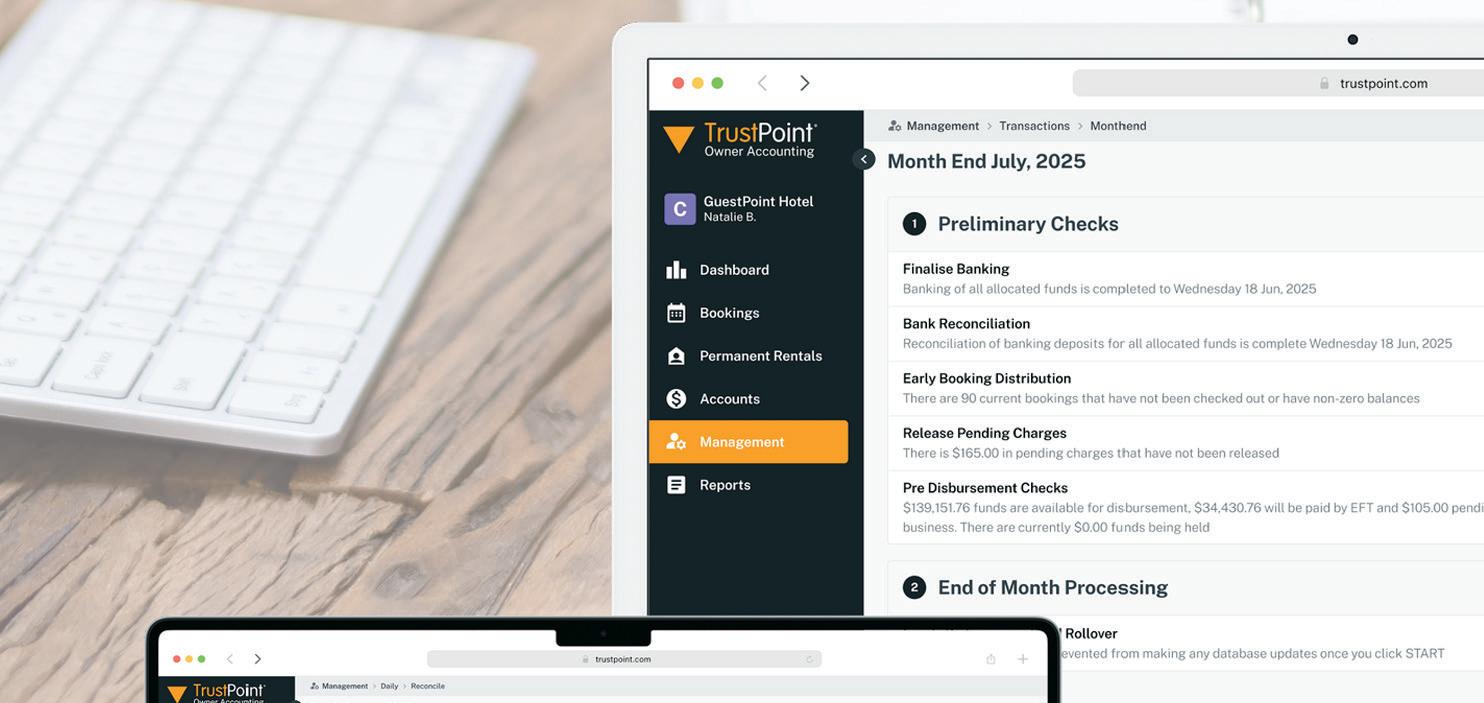






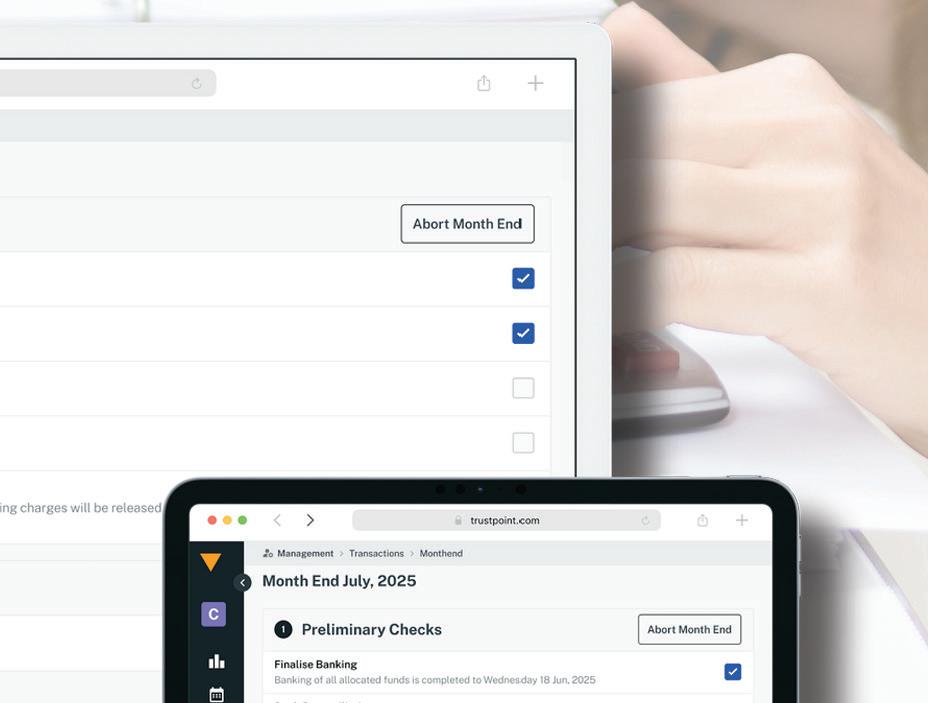




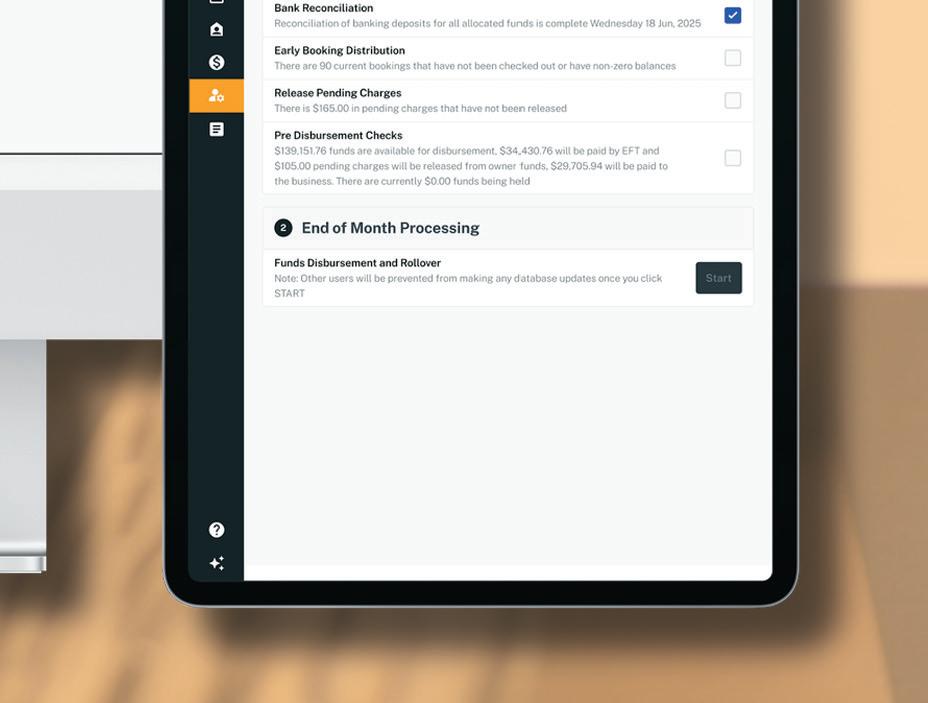
















The views and images expressed in Resort News do not necessarily refl ect the views of the publisher. The information contained in Resort News is intended to act as a guide only, the publisher, authors and editors expressly disclaim all liability for the results of action taken or not taken on the basis of information contained herein. We recommend professional advice is sought before making important business decisions.







The publisher reserves the right to refuse to publish or to republish without any explanation for such action. The publisher, its employees and agents will endeavour to place and reproduce advertisements as requested but takes no responsibility for omission, delay, error in transmission, production defi ciency, alteration of misplacement. The advertiser must notify the publisher of any errors as soon as they appear, otherwise the publisher accepts no responsibility for republishing such advertisements. If advertising copy does not arrive by the copy deadline the publisher reserves the right to repeat existing material.
Any mention of a product, service or supplier in editorial is not indicative of any endorsement by the author, editor or publisher. Although the publisher, editor and authors do all they can to ensure accuracy in all editorial content, readers are advised to fact check for themselves, any opinion or statement made by a reporter, editor, columnist, contributor, interviewee, supplier or any other entity involved before making judgements or decisions based on the materials contained herein.
Resort News, its publisher, editor and sta , is not responsible for and does not accept liability for any damages, defamation or other consequences (including but not limited to revenue and/ or profi t loss) claimed to have occurred as the result of anything contained within this publication, to the extent permi ed by law.



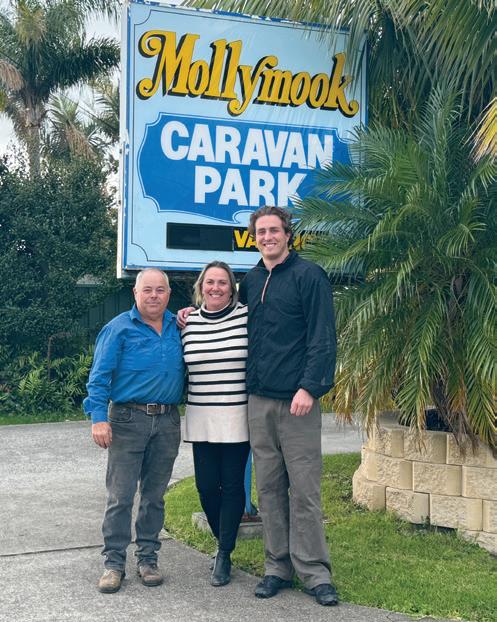


Advertisers and Advertising Agents warrant to the publisher that any advertising material placed is in no way an infringement of any copyright or other right and does not breach confi dence, is not defamatory, libellous or unlawful, does not slander title, does not contain anything obscene or indecent and does not infringe the Consumer Guarantees Act or other laws, regulations or statutes. Moreover, advertisers or advertising agents agree to indemnify the publisher and its agents against any claims, demands, proceedings, damages, costs including legal costs or other costs or expenses properly incurred, penalties, judgements, occasioned to the publisher in consequence of any breach of the above warranties. It is an infringement of copyright to reproduce in any way all or part of this publication without the wri en consent of the publisher.
Welcome to our July edition of Resort News. I hope you’re staying warm and well as winter settles in. Isn’t it the perfect time to pause, reflect and look ahead to where our industry is heading? I have always believed that a thriving industry should never stand still, and when it comes to management rights, that is especially true.
This month, our special report looks at management rights at a turning point. For decades, this sector has been the safe haven of Baby Boomers and Gen X operators, people who saw the mix of lifestyle and steady income as the perfect reward after years in the



corporate trenches. But times are changing fast and a new wave of Millennial and Gen Z operators are stepping up. They want more than just a business. They are looking for purpose, balance, autonomy and genuine community connection, and if you ask me, they’re bringing fresh energy and ideas that we could all learn from.
I have to smile, because as a Gen Xer myself, with one Gen Z and three Millennial adult children, I get daily reminders of just how sharp, savvy and creative they are. They keep me on my toes. More than once, I’ve wished I could recruit them for a bit more “onsite caretaking” at home. They have always been masters of the eye roll and the “quiet quit”, but they’re also brilliant at finding new ways to work smarter, not harder. Maybe we should all be taking notes!



In this issue, we shine a light on some of our rising stars like Yun Bai, whose journey from hotel kid in Shanghai to Cluster General Manager for Minor Hotels Brisbane shows what is possible when talent, training and mentoring come together. Her story is a reminder that this industry has the power to open doors for the next generation and flourish because of it.
Thank you for reading, for supporting each other, and for staying open to what comes next. Here’s to learning from the past, backing the future and maybe even lett ing our kids teach us a thing or two along the way?
Warm regards, Mandy Clarke, Editor, Resort News
















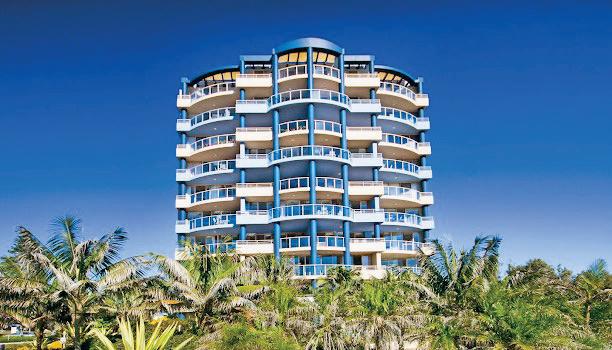







A changing of the guard:

By Mandy Clarke, Editor
The management rights industry is at a pivotal moment. For decades, it has appealed mainly to Baby Boomers and Gen X investors and business operators who viewed it as a stable, lifestyle-friendly way to generate income while preparing for retirement. Many came from corporate careers and were drawn to the opportunity to live onsite, run a business, and play an active role in hospitality and real estate.
But the sector is ever evolving. A new wave of operators has emerged: younger families seeking work-life balance, dual-career couples managing businesses together, and corporate-backed consortiums bringing scale and professionalism to the model.
Sue Fairweather, Executive General Manager at ULTIQA Hotels & Resorts, notes that appeal is also growing among Gen Z and younger Millennials, particularly those drawn to autonomy and lifestyle. “Living onsite, being part of a local community, and running a business that blends hospitality and real estate is increasingly attractive, especially when paired with the right training and mentorship.”
Through a partnership with OTTRO, ULTIQA is nurturing future talent with onsite shadowing, structured training, and mentorship pathways. Sue says: “We are seeing younger team members progress from front office roles into senior leadership positions. Watching them grow into confident and capable leaders has been one of the most rewarding aspects of my work.”

A young Millennial himself, Chris de Closey, Director at Switch Hotel Solutions, began his career in an onsite role and understands the barriers. “The hardest thing is getting young people into the industry in the first place. Too often, bodies corporate and employers prefer the older ‘mum and dad’ operators because of the perceived experience, especially in caretaking roles. Young applicants, especially Gen Z, can be unfairly written off due to stereotypes about work ethic or lack of maturity.”
He emphasises that many young managers come with solid hospitality training, but that alone is not always enough. “We need more operators willing to take a chance. I started my own career at 16 with a traineeship at an Outrigger Hotel, and that structured, hands-on training gave me the skills and discipline to succeed in management rights. That kind of real-world training makes a huge difference, but it only works if someone gives them the opportunity.”
To continue to thrive in the long term, the MLR industry must attract digitally fluent, socially engaged professionals who can meet modern guest expectations, adopt new technologies, and bring fresh energy to the role.
Despite its unique appeal, management rights remains under the radar for many young Australians. Often overlooked as a career path, it has not been marketed effectively to the next generation. Yet the role offers an enviable mix of entrepreneurship, community connection, and tangible assets. But, it is also complex, relationshipbased, and highly service-driven, requiring
skills across guest services, facilities management, investor relations, leasing, and body corporate engagement.
Yun Bai, Cluster General Manager at Minor Hotels Australasia, puts it succinctly: “It is like being a hotelier, real estate manager, and caretaker all in one. It is demanding but never boring.”
Industry veteran, mentor and Director of MLR Services, Mike O'Farrell, concedes that the pathway into the industry needs to be clearer. “Entering management rights is not just a business decision; it is a journey. Younger operators need a roadmap. It's “the cycle of life”, from buying in, to building a business, and planning an exit, every stage has its own challenges. That is why practical training, structured support, and early mentoring are so important.”
One of the biggest barriers remains finance. Younger applicants often lack the equity, assets, experience or borrowing history that banks look for. Mike Phipps, Director of Mike Phipps Finance, explains: “Finance is a major challenge for young people, with banks hamstrung by credit policies and government regulation. Many are forced to rely on family just to get started. Unlike first home buyers, first business buyers are largely on their own when it comes to government incentive programs or innovative lending products. Perhaps it’s time for governments to take the initiative in conjunction with lenders.
“But it is not just about money,” he says.
“The best operators I have come across combine a background of strong industry training, hands-on hospitality experience, and a real passion for customer service. When talent, work ethic, and commitment are evident, the industry should be doing everything it can to support and develop it.”
For those eager to enter the industry, his advice is clear: “Save like crazy. Get a job with one of the larger private operators or one of the corporates like Mantra or Accor. Build your skills and reputation. Talk to your family early about your plans and possible family involvement when or if you look to buy an MLR. Many successful young buyers rely on family support to take that first step.”
Yun Bai speaks to the importance of support and representation. Promoted to GM at 36, she now oversees multiple Brisbane properties but says the road was far from easy. “From my early experience in an MLR role to managing multiple properties today, I have seen how rewarding a career in management rights can be, but it does not come without challenges. As a young female operator, I worked hard to earn trust from body corporate members, investors, and tenants.”
Some bias around age and perceived experience remains in the industry, especially when related to the technical and operational side of building management.
Visible representation is key, Yun believes. “We cannot just open the door and expect young professionals to walk through. We need to mentor them, equip them with the right tools, and stand behind them as they build their careers.”
Marisa Millane, founder of WomenIn and Director of industry training provider OTTRO, says perception does remain a major hurdle. “To attract the next generation, we must remove entry hurdles, shift perceptions, and offer strong pathways




through training, mentoring, and real industry engagement. Their fresh thinking and digital fluency are exactly what the sector needs to evolve,” she says.
Paul Shih, CEO of PRET Australia, adds that generational differences in communication styles can present real challenges. “For onsite managers under 30, the biggest hurdle is often financial. Coming up with a 40 percent deposit is tough without family support. But even with strong tech skills, younger operators also need to bridge the communication gap.
“Owners and committees tend to prefer face-to-face interactions over emails or AI-generated replies. Building trust and relationships is essential. With the right training and shared experience, we can help younger operators grow both their business and interpersonal skills.”
Nathan Eades, National Director of Management Rights & Accommodation at Ras360°, thinks the industry needs to do a better job promoting itself. “Management rights is still a mystery to many young people. Buying a management rights business and commission-only roles like MLR broking can feel financially out of reach. But there is a real opportunity here. We need to build awareness through education, seminars, and stronger outreach, just like other industries do, to grow loyalty with the next generation. Brokers need to consider traineeships and mentoring those who show potential.
“In the end, hustle beats talent. Those willing to go the extra mile in service and communication are the future of this industry.”
Frank Matus, ResortBrokers MR agent and industry podcast host, agrees. “Right now,




we have a genuine opportunity to shape the future of management rights. The introduction of compulsory Continuing Professional Development (CPD) is a positive step, and certified training initiatives like those offered by ARAMA are giving young people a real way in. But it is not enough. We need to connect fresh energy with experienced operators, create hands-on learning experiences, and start sharing real stories on platforms that speak to younger audiences, such as podcasts, video, and social media.”
From the perspective of Sam Steel, Founder of Resly, attracting and retaining younger staff takes more than competitive pay. It requires building a workplace culture where people feel valued, supported, and can see a clear future.
Many young workers move on simply because they do not see a path forward. Offering structured training, micro-credentials, and clear growth opportunities can change that.
As Sam puts it: “Great teams do not happen by accident. Investing in people drives loyalty, lifts service and helps future-proof the business.”
To connect with this generation, Sam says the industry must understand what matters most to them. “They are not just chasing a paycheque; they're seeking workplaces that align with their values. Their priorities are flexibility, purpose, and continuous learning.
“As standard, many expect hybrid or flexible working. They value autonomy, trust, and roles that contribute to something bigger. Employers who can clearly articulate their purpose and impact will stand out. , agrees. “Right now,












“This goes beyond surfacelevel perks,” he explains.
“It’s about fostering a real sense of belonging, encouraging input, and recognising contributions. When younger staff feel heard and engaged, they’re more likely to stay and grow.
“If the industry wants to secure the brightest emerging talent, it must shape roles to reflect these priorities—combining structured development with flexibility and aligning performance with purpose.”
Greg Jorgensen, Founder and Director of Management Rights Brokers Australia, believes that to attract and equip the next generation, the role of the resident manager must be formalised through structured education.
“To attract and support future managers, we need a mandatory pathway into the industry that enhances credibility and provides a strong foundation for those entering the profession,” he says.
He proposes the development of a formal study course, ideally delivered as a certificate or diploma, created in partnership with ARAMA and industry experts. This program would cover the full scope of day-to-day caretaking responsibilities across townhouse and apartment complexes. It would also include modules tailored to the unique demands of different business types, such as permanent rentals, short-stay holiday letting, student accommodation, mixed-use developments, and hotels.
The course would include essential skills such as budgeting, sinking fund forecasting, and managing emergency repairs, including issues like cyclone damage. A minimum number of practical onsite experience hours would ensure that new managers are not only qualified but prepared for the realities of the role.
Greg said that a formal, TAFE-level qualification would help shift public perception of management rights from a lifestyle-driven career change to a respected professional pathway. He added that with the right marketing and government support, such a course could play a major role in attracting and preparing the next generation of operators.
He also highlighted that the current barrier to entry remains low. While many new managers have the financial ability to purchase a business, they often lack the skills needed to operate effectively. Aside from ARAMA’s highly regarded one-day introductory course and a few private training providers, there is no mandatory education to enter the industry.
“To ensure the future of the sector, we need to demonstrate that managers can be professional, highly skilled, and focused on acting in the best interests of all lot owners,” he says. “A compulsory, structured learning platform would go a long way toward building the industry’s credibility and ensuring long-term success.”
This vision complements the work already underway by ARAMA. In June 2024, the Queensland Government passed legislation requiring Continuing Professional Development (CPD) for all property professionals, including those in management rights. From June 2025, all licence renewals must be supported by two approved CPD sessions per year.
Trevor Rawnsley, CEO of ARAMA, says this creates a more professional entry point. “While finance remains a major hurdle for young people trying to enter the sector, a lack of awareness is just as limiting. Too few understand what this industry really offers or even realise it is a viable, rewarding career path. At ARAMA, we are working hard to change that.”
Trevor highlights ARAMA’s growing suite of initiatives designed to support new entrants, including the Management Rights Industry Training Program, (MRTP), specialised masterclasses focused on both operations and relationship management, and a structured mentoring network. With CPD now compulsory in Queensland, ARAMA is delivering practical, often free, training designed to build real-world confidence and long-term capability.
“Get involved. Join ARAMA, contribute to our committees, and help shape the future of this industry.”
For decades, the management rights industry has thrived thanks to the investment, commitment, and expertise of older operators. To move forward and to ensure smooth and successful exits for current operators, we must actively engage with the next generation.
As Mike O'Farrell puts it, this is “The Cycle of Life,” and keeping it in motion requires the industry to actively support the next generation. That means opening doors through structured training, mentorship, inclusive leadership, and a strong workplace culture. Just as important are financial support, visibility, and a clear path forward, all essential ingredients for attracting and retaining new talent.
There is more than one way to build a successful career in management rights. Now is the time to tell that story, support new entrants, and create a future that is more professional, diverse, and resilient.
The opportunity is here. The future depends on what we do next.



By Trevor Rawnsley, CEO, ARAMA
Almost half a century ago, the great Australian actor Peter Finch won an Academy Award for urging everyone to stick their heads out the window and shout, “I'm as mad as hell and I'm not going to take this anymore.”
In one of the greatest screen monologues ever, Finch’s character looked into the camera and declared: “We know things are bad. Worse than bad. They're crazy. It's like everything everywhere is going crazy.”
That was almost 50 years ago, and things have gotten worse in many ways. So many aspects of life—politics, social media, entertainment, and even retail shopping—have an ever-more-vicious tone.
We live in an increasingly hostile and angry world and those problems are magnified in strata schemes when we have neighbours, not just on either side, but above and below us. Hardly a week goes by when there isn't a resident manager ringing ARAMA in a stressed state to say they are being bullied and harassed in their complex.
Chris Irons, formerly Queensland’s Commissioner for Body Corporate and Community Management and now the director of Strata Solve, Queensland’s leading strata dispute resolution and










problem-solving firm, has previously said that bullying and harassment are probably the most pressing issues in strata.
Well, like Peter Finch, I’m as mad as hell, and so are ARAMA members. We’re not going to take bullying and harassment anymore.
We have introduced what we believe are powerful tools to stop such behaviour and have been bolstered by a recent landmark court case that proves resident managers, and their contractors are protected by legal provisions against bullying and harassment in the workplace.
The definition of workplace bullying is: “repeated and unreasonable behaviour directed towards a worker or a group of workers that creates a risk to health and safety.”
“Unreasonable behaviour” means “behaviour that a reasonable person, having considered the circumstances, would see as unreasonable, including behaviour that










is victimising, humiliating, intimidating, or threatening.”
Bullying and harassment in strata is not limited to caretaking service providers. It often involves unit owners targeting other unit owners. Aggressive behaviour, which can be interpreted as bullying or harassment, is also directed at committee members and chairpersons. As a result, many capable individuals who would otherwise serve on committees are put off by the toxic culture they witness.
This often discourages good people from volunteering in community title schemes and can result in bullies dominating committees after driving others away. The same issue aff ects body corporate managers, and there are many reports of them being subjected to bullying and harassment. It needs to stop.
The good news is that there is a great deal of support and resources available to help address the issue.







Recently, under the Fair Work Act 2009, a society representing a major primary producer was unsuccessful in preventing a volunteer director from seeking a stop bullying order against its president. These applications are available to workers who reasonably believe they have been bullied at work.
The society objected, arguing that the director was not a worker because she was unpaid and did not receive any other benefi ts from the role. However, the Fair Work Commission ruled that a person only needs to perform work in any capacity for a PCBU (person conducting a business or undertaking) to meet the definition of a worker.
On this basis, the director was considered a volunteer, which made her a worker under the Workplace Health and Safety Act ARAMA is committed to creating psychologically safe communities for our members and all who live, work, and invest in Strata.
The community title scheme is our workplace, the committee meeting room is our workplace, the common area is our workplace, and our office is our workplace. And we have protections against being bullied and harassed as a result of that under Workplace Health and Safety laws.
This recent legal case highlighted that caretaking service providers and committee volunteers, as well as body corporate managers and contractors, have strong protections under the Workplace Health and Safety legislation.
In any large company, it would be unacceptable to be screamed at, threatened, coerced or extorted. The same standard applies in our workplace—that behaviour is equally unacceptable.
Trying to resolve disputes through the courts is always a lengthy, costly and protracted process, but at least legal protections have been upheld. There should be no doubt that they exist to protect our members,
At the request of the Queensland Government, as part of its focus on psychologically safe workplaces, I formed a special interest group consisting of three unit owner representatives, two practising body corporate managers, a practising residential manager (Guy Elliott, our national president), and myself.
All of us live, work or invest in strata, and together we have developed what we call a statement of intent, aimed at helping to create psychologically safe communities within our industry.
We have developed an opening statement for strata meetings, designed to nip bullying and harassment in the bud.
Bullying and harassment often becomes apparent during committee or general meetings when owners come together and disagree over an issue.
Most of the time, it is unit owner against unit owner. They disagree, the disagreement escalates, and it is on for young and old. The conflict often continues after the meeting and spreads into the wider strata community.
The special interest group decided to distil everything down to a simple opening statement to set the tone for the meeting. The intention is that, at a strata meeting, the chairperson opens the meeting, welcomes everyone and reads out the statement of intent.
The statement reads: “We, the attendees at this meeting, understand and agree that respect is our common ground. We agree to listen to each other and not engage in personal attacks, even when we don’t agree. We commit to respectful interactions with each other and to leave any disagreements behind in the meeting room.”
The intention is that the chair asks for the meeting to endorse the statement and that it be entered into the minutes, assuming the meeting agrees. It could also be distributed with the agenda as the first item of business if that is the will of the committee.
It sets the ground rules.
We deliberately haven't said “this is what you should do”. We deliberately haven't said “these
are the only words you can use”.
But we've said, “please consider it”.
It's a real light touch. It's the first step in the quest to create psychologically safe communities, and it would certainly identify potential troublemakers who don't belong in that meeting, if they're not even going to agree with that basic element of respect.
This statement of intent is recommended for strata schemes all around Australia.
If we can at least get people at the meeting to respect each other and not use personal attacks, then it will go some way towards creating psychologically safe communities.
Because the converse of that (and what we’ve been hearing far too often) is that we have members who are severely affected by bullying and harassment to the point where they can't think properly.
A couple of years ago, ARAMA introduced our Member Assistance Program, A-MAP that is a reactive measure against bullying and harassment.
We have also been running our ARRM program (ARAMA Relationship Revival Masterclass), which shows resident managers that they have a responsibility to do all they can to nip bullying and harassment before it starts.
But our statement of intent is there as a preventative measure. Let’s be clear!
Bullying and harassment are not just someone wanting you to do your job properly.
Resident managers must do
all they can to promote good relationships at a scheme.
Disputes over performance are common in relationships between customers and service providers and they are the easiest dispute to fix.
Resident managers and everyone else working in strata have an active role to play to prevent disagreements from festering into bullying and harassment.
When some attendees at our Relationship Revival Masterclasses (thankfully, only a small number) realise they are not actually being bullied or harassed and may, in fact, be the problem themselves, they are not happy to hear it at first.
But when they hear it from their peers, they understand. When they walk out of the room, it is clear they have been positively affected by the realisation that, by changing certain behaviours and using different skills or language, there is less likelihood of conflict, and with that, a reduced perception of bullying and harassment.
This statement of intent is designed to stop bullying before it starts. It is designed to create a positive environment and to create psychologically safe communities.
If you have a problem where people are yelling at you in a meeting, take this statement along and ask the committee, “Hey, will you agree to this?”
There is nothing in this statement of intent other than identifying that respect must be the common ground for everyone to benefit.
It would stop a lot of people from being as mad as hell.
Forget what you think you know about managed investment schemes in a management rights business. Or, more accurately, try to remember what your lawyer told you about management investment schemes when you bought your management rights business and forget what everyone else has been telling you since then.
As a lawyer working on management rights transactions for many years, it’s hard to name an area of the law that is more often overlooked and misunderstood by building managers than












By Ben Ashworth, Senior Associate, Small Myers Hughes Lawyers
the law surrounding managed investment schemes. I’m not surprised or off ended by this as managed investment scheme compliance fi ts snugly in the “set and forget” box for many businesses, and, ideally,
fits snugly in the “set and forget” box for many businesses
it has been “set” correctly by the prior building manager so that when a new building manager comes along, there appears nothing new to do.
The problem, of course, is that there are things that need doing and this becomes especially apparent when it comes time to refinance or sell your management rights business.
If you don’t conduct any lett ings with your management rights business, this is not for you.
If you only operate permanent/ long-term lett ings in your complex, this is not for you.
If your complex has less than 20 units, this is not for you.
If your business conducts shortterm lett ings but you currently have less than 20 units in your lett ing pool, bookmark this page and come back when it looks like you might go over 20.
If you are still here, it means you conduct short-term lett ings in your complex, and your lett ing pool has the potential to go over 20 owners or already is over 20. In simple terms, it means it is very likely that you are operating what is considered a managed investment scheme and need to comply with a list of requirements regulated by ASIC. Failing to do so is a breach of the law and the terms of most loans off ered by banks.
Note, I made no mention above about “pooling” income or “pooling” expenses. What is or
isn’t considered a managed investment scheme in management rights has nothing to do with whether income or expenses are pooled.
Nothing. Zip. Zilch.
So, at this point, it is best to assume that you need to be compliant and that this will require a checklist of things to be considered and addressed by your lawyer. In most cases, this means updating or inserting certain terms and conditions in your lett ing appointments and preparing and issuing a Product Disclosure Statement (PDS) to every owner in your shortterm lett ing pool. How much, or how litt le, you will need to do depends on your personal circumstances and the level of compliance inherited from the previous building manager.
Unless you are absolutely certain that you understand your day-to-day obligations and requirements that keep you managed investment scheme compliant, I strongly recommend you touch base with your lawyer. After you have done that and have all your documents and procedures in order, you can go back to sett ing and “mostly” forgett ing.
Liability limited by a scheme approved under Professional Standards Legislation.
Disclaimer – This article is provided for information purposes only and should not be regarded as legal advice.




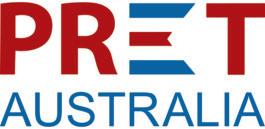







































































By Jane Wilson , Commissioner for Body Corporate and Community Management
Recent legislative updates concerning smoking within Queensland's community titles schemes represent a significant shift in the balance between individual freedoms and community wellbeing.
With the amendments to the Body Corporate and Community Management Act 1997 (BCCM Act), taking eff ect on May 1, 2024, bodies corporate now have enhanced powers to reasonably restrict or prohibit smoking in various areas.
These areas include anything from common property spaces to private outdoor areas.
By redefining the boundaries within which residents can indulge in their habit, the amendments bring clarity and authority to bodies corporate to enact their bylaws.
This authority comes with the responsibility to ensure these bylaws are neither oppressive nor unreasonable, as specified by the BCCM Act.
Crucially, it doesn't encroach on the privacy of enclosed spaces within one's own lot.
The changes enable bodies corporate to ‘reasonably’ restrict or prohibit the use of smoking products on all or part of:
• common property of the scheme;
• body corporate assets;
• outdoor exclusive use areas; and
• outdoor areas of lots (for example balconies, courtyards, patios, verandas).
Further, the BCCM Act now states that a prohibitive or restrictive bylaw about smoking is not considered oppressive or unreasonable.
The success of this legislative change hinges on clear communication, eff ective enforcement of bylaws, and the cooperation of all parties involved.
Smokers must recognise and mitigate the impact of their smoke while non-smokers have clarity on their rights to a smoke-free environment.
All community members are encouraged to acquaint themselves with both the letter and spirit of these laws to foster harmonious living arrangements within their schemes.
By doing so, the communities can strike a balance between respecting the health concerns of non-smokers and facilitating reasonable spaces for people who smoke.
The BCCM Act adopts the same meaning given to the following terms as in the Tobacco and Other Smoking Products Act 1998 dictionary:
• inhale : to draw a vapour or gas into the individual’s lungs;
• smoke: hold or, otherwise have control over a smoking product when it is ignited; or inhale through a hookah; or inhale through a vaping device;
• smoking product: a tobacco product, herbal cigarette or loose smoking blend; or tobacco or another thing smoked in a hookah.
Smoking products can also include personal vaporisers (electronic or e-cigarettes, e-cigars, and vape pens) and personal vaporiser-related products (e-liquids and e-cigarette parts), smokingrelated products or packages or cartons of these items.
For the remainder of this article, the terms “smoking” and “smoker” can be applied to the use of any of the above products and potentially other smoking products not mentioned.
You must consider the impact of your smoking on other occupiers living in the community titles scheme. It is your responsibility to determine where you can smoke within your scheme.
Importantly, you are not permitted to smoke in a way that interferes with another lot owner or occupier’s enjoyment of their lot or common property.
Further, your scheme’s bylaws may not permit you to smoke outside anywhere on scheme land, including outside on your lot, in your exclusive use area, or on common property. However, you may consider smoking elsewhere within your lot, provided you take reasonable steps to ensure that smoke emanating from
your lot does not aff ect any person lawfully using another lot or the common property.
An adjudicator has suggested you consider closing windows and doors within the lot to prevent smoke escaping (Artique [2021] QBCCMCmr 596 (21 December 2021)
Nevertheless, the design of your building might hinder your ability to confine smoke within your premises, particularly if internal air conditioning ductwork is involved.
My scheme already had a smoking bylaw prior to May 1, 2024. What do the new changes mean for us?
The legislation also states that bylaws in force before the amendments on May 1, 2024, are valid and enforceable, to the extent the bylaw is consistent with the new legislative changes (section 169A).
This means that your scheme may already have a valid bylaw in place that regulates, restricts, or prohibits smoking on common property, exclusive use areas, and/or outdoor areas of lots.
It is recommended you check and review your scheme's current bylaws (found in your community management statement). If you don't have a copy, you can contact Titles Queensland to obtain a current copy.
Pursuant to section 94 of the BCCM Act, it is the body corporate’s obligation to enforce the bylaws, and they must make reasonable decisions when doing so.
The body corporate is authorised to initiate enforcement of the bylaws whenever there are reasonable grounds to suspect a contravention.
The general process for a body corporate to enforce bylaws includes:
• issuing a contravention notice (form 10 or form 11) to the person in breach of a bylaw;
• applying for conciliation and/or starting a proceeding in a magistrate court against the person if they continue to breach the bylaw.
Should you be an occupier impacted by smoking within your scheme, you are empowered to take measures to uphold the bylaws. You might consider the following actions:
• Speak or write to the smoker in question to discuss the scheme’s bylaws, highlight their responsibilities, and express the eff ect of their smoking on you. Collaborating from the outset to find a mutually agreeable solution can be beneficial.
• Issue a Form 1 Notice to the body corporate of a contravention of a body corporate bylaw. The body corporate is required to notify you within 14 days regarding their decision to issue a contravention notice to the individual in breach.
• Lodge a conciliation application with the BCCM office, against either the person in breach or the body corporate, if the issues are unresolved.
Please refer to our practice direction on bylaw enforcement applications, which outlines the steps required before lodging a dispute resolution application with the BCCM Office.
I’ve checked, and my scheme does not have a smoking bylaw. What can I do?
Your scheme may lack a specific bylaw addressing smoking. In
A significant shift in the balance between individual freedoms and community well-being
such cases, adjudicators have considered the applicability of section 167 of the BCCM Act.
This section provides that smoking could be a nuisance or a hazard when occupiers or their invitees regularly smoke on the lot or common property, to regularly expose another occupier or invitee to smoke or emissions from the smoking product.
A recent adjudicator's order Georgina Views [2024] QBCCMCmr 357 provides a summary of this concept:
“The inhalation of second-hand smoke is a hazard. It is adjudged as such by public health legislation. The issue of whether smoking constitutes a hazard, contrary to section 167(a) of the Act, has also been specifically considered in Queensland in Artique [2021] QBCCMCmr 596 where an adjudicator held that smoke drift constituted an unreasonable interfering with the lawful use of other lots and that it constitutes a hazard. Section 167 of the Act prohibits the respondents from using their lot or common property in a way that causes a hazard. I have perused the building format plan for the scheme and note that the lots are directly next to each other. Further I am satisfied that smoking in the lot 3 exclusive use courtyard would cause smoke drift into lot 2 and the lot 2 courtyard.”
When your scheme does not have a smoking bylaw, you can consider enforcing a contravention of the BCCM Act. This may include engaging in self-resolution or internal dispute resolution before applying for a dispute resolution process through the BCCM office. Self-resolution or internal resolution attempts might include:
• Communicating, either verbally or in writing, directly with the smoker to address the impact that their smoking
has on you and their duties under section 167 of the BCCM Act.
• Proposing a motion for the body corporate to act and enforce section 167 of the BCCM Act against the person smoking.
• The body corporate may use its own procedures to enforce section 167 of the BCCM Act, such as contacting the owner to clarify the nature of the breach.
• Lodging a dispute application with the BCCM office against either the smoker or the body corporate should the self-resolution eff orts prove fruitless.
How can I make a new bylaw to restrict or prohibit smoking in my scheme?
You may wish to submit a motion to the body corporate at a general meeting to change the bylaws to include a smoking bylaw.
A body corporate can make changes to its bylaws at any time by submitt ing a motion requiring a special resolution to a general meeting. All lot owners will have the opportunity to vote on the change.
If you are proposing a motion, you may wish to consider these tips for wording your motion (see our webpage draft ing motions):
• Your proposed smoking bylaw may restrict all or some types of smoking products, and all or some locations within the scheme.
• Your proposed smoking bylaw cannot restrict smoking within the enclosed area of someone’s lot.
• Check to ensure your proposed smoking bylaw
is consistent with section 169A of the BCCM Act.
• When writing your motion, be clear, concise, realistic, and action-based. This will ensure voters understand exactly what you are proposing and what needs to be done if the motion passes.
• You may include an explanatory note with your motion of no more than 300 words (see also our webpage on submitt ing motions).
For a special resolution, the motion will only pass if all the following three conditions are met:
• At least two-thirds (or 66 percent) of votes are in favour of the motion; and
• no more than one-quarter (or 25 percent) of votes are against the motion; and
• of the votes against the motion, the total contribution schedule of lot entitlements is not more than onequarter (25 percent) of all lots in the scheme.
If the motion passes, the body corporate must register the new community management statement with Titles Queensland within three months.
Smoking can significantly impact bodies corporate, committees, lot owners, and occupiers. For more detailed information about smoking in community title schemes, please consult our factsheet.
Additionally, you are welcome to reach out to our Information and Community Education Unit by calling 1800 060 119 or through our online contact form at www.qld.gov.au/ bodycorporatequestion. Further resources and guidance can be found on our website at www. qld.gov.au/bodycorporate.








By Mandy Clarke, Editor
For Yun Bai, hospitality is more than a career. It is part of her DNA. Raised in Shanghai, she grew up in a vibrant four-star hotel managed by her mother. Her childhood home was a guest room, the hotel kitchen was her pantry, and the sta were like extended family.
“It was a magical way to grow up,” she says with a smile. “I had room service on call, but the downside was I could never sneak in late as a teenager. There was always someone at the front desk ready to report back to the GM—my mum!”
That deep connection to the hotel world shaped her path early. After completing a master’s in international hospitality management at the University of South Australia, Yun gained experience across hotel departments before entering the world of management and letting rights (MLR) in 2017. She joined what was then Oceans Hervey Bay as Rooms Division Manager. The resort was later rebranded under the Oaks Hotels, Resorts and Suites banner, which marked the beginning of her journey with Minor Hotels.
Her career accelerated from there. Yun became General Manager of Oaks Brisbane on Charlotte Suites at just 36 years old. In 2023, she was promoted to Cluster General Manager for Brisbane Central and now oversees six Oaks properties within a broader portfolio of 14 across the city.
Most recently, Yun took on one of her biggest challenges yet: launching Queen’s Wharf Residences, a new-build tower within the landmark Queen’s Wharf precinct. The building stands 64 storeys tall and contains 667 lots. Minor Hotels manages the building and holds the exclusive letting rights, including the short-term letting pool.
“This project has been one of the most exciting of my career,” Yun says. “We furnished every apartment in the shortterm pool ahead of the May 2025 opening. It was a massive undertaking.”

The opening month aligned with three of Brisbane’s biggest events: Magic Round, the Truck Show and State of Origin. The property was fully booked, and the pressure was on.
In her current role, Yun balances the needs of investors, residents, body corporate representatives, guests and staff. Her responsibilities span financial planning, operations, team leadership, guest satisfaction, owner relations and more. It is a fast-paced, ever-changing role and one that requires sharp attention to detail and strong communication skills.
“It is like being a hotelier, real estate manager and caretaker all in one,” she says. “It is demanding but never boring. I learn something new every day.”
Yun credits her mother as her greatest inspiration. “She ran a 250-room hotel in Shanghai for 30 years while raising a family. She set the bar high and made it look easy. I try to bring that same balance to my work.”
Developing future hospitality leaders is something Yun cares deeply about. She believes the industry has changed significantly in recent years, especially following the challenges of COVID.
“Guests have higher expectations, and recruitment and retention have become more difficult. We need to show young professionals that hospitality is more than a casual job. It can be a rewarding career.

“Be bold. Speak up, be firm and believe in yourself.”
“We have many Gen Z team members who start in guest-facing roles. With the right training, they begin to understand the variety and opportunities this industry off ers.”
She describes her leadership style as empowering, empathetic and strategic. She leads by example and encourages her team to grow into leadership roles.
“I never ask my staff to do something I would not do myself. And I always try to think several steps ahead.”
Some of her most rewarding moments have come from team and guest feedback.
One guest at Oaks Hervey Bay Resort and Spa enjoyed their stay so much that they purchased an apartment and asked Yun to guide them through the process. Another time, a junior team member told her she was their mentor.
“That was special. It made me feel like I am doing something right.”
To stay motivated, informed and energised, Yun (of course) reads Resort News, attends
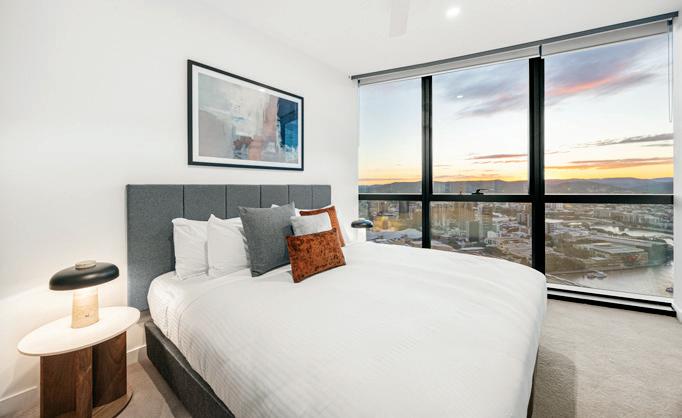
ARAMA and other industry-related events, listens to hospitality podcasts and keeps up with legislative changes. She draws personal inspiration from motivational podcaster Mel Robbins and finds humour in the comedy of Carl Barron.
When she needs to unwind, Yun values quality time with family and friends. She also enjoys lett ing her hair down with colleagues, often sharing a laugh about the more colourful moments of MLR life. “Sometimes I think we should start a reality show,” she laughs.
Her advice to other women working towards leadership roles in hospitality is simple:
“Be bold. Speak up, be firm and believe in yourself.”
Through determination and resilience, Yun Bai is not only leading high-performing teams. She is redefining what leadership in MLR can look like and lift ing the game for everyone in the process.
And through it all, she’s building something bigger—reshaping expectations.




By Robert Lalor, Director, Hynes Legal
The requirement in NSW for body corporate committee volunteers to undergo compulsory education in strata law is a fresh take on the old saying that the road to hell is paved with good intentions.
While there is no plan for Queensland to follow NSW in
forcing committee members into the strata schoolroom, that won’t stop some from looking south and pondering whether we should follow suit.
For many years, bodies corporate have been seen as the fourth tier of government, after federal, state and local.
A strata committee has considerable power in the running of a community, with the ability to enact and enforce bylaws that have a large impact on the lives of people in those communities.
So, given the complexity of the law, surely this is an argument that all committee members should have a baselevel understanding of strata, and compulsory education would be a good thing.






Management rights holders are required to have certification to let apartments as well as hold various other qualifications – wouldn’t life be easier if committee members underwent some training as well?
This is where good intentions can come a cropper.
A body corporate depends entirely on volunteers—and volunteerism is on the wane.
The commissioner’s website is an Aladdin’s cave of free resources for strata committees and resident managers, offering guidance on the smooth and efficient running of a body corporate.



Choosing the right strata manager can make or break your long - term piece of mind and, more importantly, the asset value of your complex
We are a Queensland based strata management company that has significantly increased its market share by providing the highest quality professional service and develop long term values relationships with all stakeholders.
People’s lives are busy and complex. Getting them to volunteer their time to serve on a body corporate committee is difficult enough without the added requirement that they undergo compulsory training as well. This additional burden could have the perverse outcome of reducing the effectiveness of committees by making them even less attractive to serve on than they already are.
It may be better to accept the lesser of two evils: having some undereducated people on a committee rather than none at all.
The Office of the Commissioner for Body Corporate and Community Management is unique to Queensland; no other jurisdiction has a comparable body overseeing strata law.
In the interests of encouraging people to volunteer—by not adding barriers—and better educating those who do, with a wide array of helpful resources, the best way forward for Queensland is surely to keep the current system in place.
There’s a principle known as Chesterton’s fence: never remove a structure before understanding why it was there in the first place. This concept applies well to the idea of mandated education for committee volunteers.
It will be interesting to watch how this plays out in NSW. Already, some interesting debate is occurring, led by Francesco Andreone in his online commentary.
Enthusiastic volunteers, supported by a wealth of resources to inform their decisions, present a more logical path than introducing yet another barrier to joining a committee. To (mis)quote Pink Floyd’s legendary The Wall album: “We don’t need no (mandated and disincentivising) education...”







By Jonathan Hanaghan, Principal, Count Gold Coast
Every year from July 1, all Australian resident taxpayers must provide the deputy commissioner of taxation with a compliant tax return declaring all amounts of assessable income and the associated expenses they have incurred in earning this income. For some, this is quite a simple affair, but for most, trading within the accommodation industry it can be more complicated. More often than not, an entity tax return, such as a trust, company or partnership, must be completed as well as at least one individual tax return.
I will now go through a stepped approach that should be useful in collating the required information and ensuring you meet your taxation reporting obligations.
Find out from your accountant or tax agent what your due date for lodgment is. This due date
will range from October 31 to mid-May the following year. For most businesses lodging with an accountant, their due date will be mid-May.
Contact your accountant for this. This may be a standard checklist or a more customised and detailed list of required information.
Discuss how, when and where your work will be processed. Your accountant should have a standard processing timeframe.
Agreeing on the time frame for completion is even more important if you require your tax returns for a finance application, an annual bank review or are part of a corporate agent partnership. Generally, if you need your finance approval pre-December 31, you can use the prior year’s tax returns.
Step four: Ensure your bookkeeping software program is accurately reconciled to
Whether you use MYOB, QuickBooks, Xero or another program, you must ensure that your data is accurately reconciled to June 30 of the relevant financial year. This is important as it provides the starting point for your accountant to begin
processing your work. Those that have their books kept internally by their accountants’ in-house bookkeeping services don’t need to worry about this step.
Step five: Collate supporting information as per your checklist or information request
This may require getting copies of bank and loan statements, purchase and sale contracts for assets bought and sold (including property, shares, motor vehicles and so on). You may need to contact your bank, solicitor, stockbroker or real estate agent. This can take time, so it is best to get onto this as soon as possible.
Ensure any outstanding amounts of income tax, GST or PAYG have been paid. If this is not the case, you need to advise your accountant.
This involves sending all requested information to your accountant together with any other written instructions, including details on who is best to deal with any queries that may arise. At this point, you may also be required to sign an engagement letter or similar document outlining both party’s roles and responsibilities.
If you are unsure about any matter, contact your accountant before sending. It is better not to start an engagement until all relevant information is with your accountant.
Make yourself available via phone or email to deal with any queries from your accountant. Most taxation compliance jobs have transactions that require clarification. It is best to deal with them as quickly as possible.
This can involve a meeting or a phone call to discuss the resultant financial statements and tax returns. It is important that each client understands the contents of the tax returns as each taxpayer is ultimately responsible for the contents of their own tax return. This is also a good opportunity to discuss any other issues or questions you may have, such as changing software programs or even selling the business.
The taxation system in Australia is based on self-assessment, so each taxpayer needs to take care when preparing their tax returns. This all starts with the quality of the information supplied to your accountant and the planning that goes into the process. A smooth engagement with minimal or no queries will always result in a much better outcome for the client and the accountant.




By Andrew Morgan, Motel Broker/Partner, Qld
Tourism & Hospitality Brokers
Finding a passive investment motel with a lease in place has, for many, felt like searching for a needle in a haystack, and with good reason.
Motels under lease have become highly sought-after passive investments and are tightly held for several key reasons:
When a motel is leased to an operator, the property owner (lessor) receives a fixed rental income, often with annual increases. This provides a stable and predictable cash flow, ideal for passive investors. Motel leases typically require the lessee to cover all outgoings, including council rates, insurance, utilities, and repairs and maintenance.
Leased motels are rarely vacant. If a lessee exits, the mortgagee or property owner generally steps in to maintain operations until a new operator is secured. This helps ensure continuity of income and protects the asset’s value.
Investors are drawn to the longterm, stable income and the ability to control their retirement assets.
The lessee (operator) is responsible for the day-today running of the business, including staffing, maintenance and marketing. This allows the investor to remain hands-off, with no involvement in operations, hence the term passive income.
Leases are typically longterm (often 10 to 30 years) providing security of tenure and reducing vacancy risk. Many agreements also include renewal options, further extending the investment horizon.
While the lease provides growing income, the underlying real estate may also appreciate over time. Investors can benefit from both rental income growth and capital gains.
Depending on the jurisdiction, there may be depreciation and other tax advantages associated with owning a commercial property such as a motel.
Those already in the industry
recognised the benefits early. With the “inside running,” they secured opportunities before the broader investment community fully understood their value. These properties are often snapped up by experienced investors or insiders before reaching the open market, creating a perception of scarcity and driving up competition when one does become available.
Passive investment motels offer reliable income with minimal effort, making them highly attractive. Once acquired, they’re typically held long term, which reduces turnover in the market. However, when an owner chooses to sell (and the property is priced correctly) there’s rarely a shortage of interested buyers.
Compared to other commercial real estate, motels under lease often offer competitive (or even higher) yields with relatively low management risk, particularly when leased to reputable operators. Motels have proven to be resilient and consistent performers. They’re often located in high-traffic areas and benefit from strong land value and steady occupancy rates.
Most motels are built with durable materials such as brick or block, with Colorbond, tin or tile roofing. This construction style requires minimal ongoing maintenance, reducing capital expenditure and enhancing long-term returns. The rise of the ‘createyour-own’ passive investment
Humans are nothing if not resourceful. When we can’t find what we’re looking for, we adapt. To overcome the challenge of finding a passive investment motel, savvy investors are now creating their own, following a simple, strategic approach:
• Buy a freehold going concern (FGC): This means purchasing a motel where the buyer owns both the property and the business.
• Sell a lease to an operator: This transforms the FGC into a passive investment by separating the business from the property.
• Retain the freehold: The investor becomes the lessor, collecting rent while the operator runs the business. This approach enables investors to manufacture their own
passive investment, often with greater control over lease terms and lessee selection.
Pre-qualified buyers: Many investors are actively monitoring the market and ready to move quickly when opportunities arise.
Off-market deals: A significant number of transactions occur privately (through brokers or investor networks) never making it to public listings.
Perceived value: When a tenanted motel does reach the open market, it’s often viewed as a rare and valuable opportunity, prompting swift interest and action.
In the early days of motel leasing, the primary investors were former and current operators. They had firsthand knowledge of how motels functioned, understanding occupancy patterns, seasonal trends, operational costs and guest expectations.
They also recognised that accommodation is a necessity, not a luxury. Business travellers, contractors, tourists, and emergency stays all contribute to steady, reliable demand. Meanwhile, the wider investor market
• Lacked familiarity with the motel business model.
• Viewed motels as operationally intensive and potentially risky.
• Favoured more traditional commercial assets such as retail, office or industrial properties.
• Proven track record: As leased motels consistently delivered strong returns, more investors began to take notice.
• Professionalisation of the sector: The rise of specialist motel brokers, management companies and structured leases made the model more accessible and transparent.
• Yield compression in other sectors: As returns declined



in other commercial property classes, motels offered more attractive yields for similar (or lower) levels of risk.
• Education and awareness: Industry publications, seminars and word-ofmouth helped demystify motel investments for a broader audience.
• Interest rate environment driving demand: Persistently low interest rates have made traditional savings options less appealing. In response, many investors have shifted toward passive investment motels to achieve better returns with manageable risk.
Recognition of strong fundamentals:
As the high returns and relatively low risk of motel investments became more widely recognised, the consistent demand for accommodation, driven by business, tourism and essential travel, demonstrated the resilience of the asset class.






Entry of corporate and institutional investors
Corporate investors began acquiring motels as part of diversified commercial property portfolios. These entities often own multiple motels, leveraging economies of scale in management and maintenance.
Growth of individual portfolios
Smaller investors who began with one motel often expanded their holdings, building miniportfolios of leased motels.
This trend reflects growing confidence in the repeatability and scalability of the investment model.
Rise of self-managed super funds (SMSFs)
SMSFs have become a popular vehicle for acquiring motel freeholds with leases in place.
Investors are drawn to the longterm, stable income and the ability to control their retirement assets.
Motels offer a tangible, income-producing asset that aligns well with the longterm investment horizon of superannuation funds.





















By Lynda Kypriadakis, The Diverse Group of Companies & DPX Projects
In the Australian strata landscape, caretaking service providers (caretakers) play a vital role in maintaining and preserving the common property of a scheme under management rights agreements.
However, fulfilling the physical tasks of maintenance and cleanliness is only one part of a successful operation. The other (and often more challenging) component is cultivating and sustaining a constructive, professional relationship with the body corporate committee. This relationship is the linchpin of effective caretaking and, when nurtured appropriately, leads to well-maintained assets, improved resident satisfaction, and reduced conflicts. Conversely, when it deteriorates, the results can include formal disputes, contract strain, financial impact, and even reputational damage. Below are key strategies for caretakers to optimise their professional interactions with committees and avoid common pitfalls.
One of the most effective tools in professionalising caretaker services is the development and presentation of a site-specific Facilities Management Plan.
An FMP outlines the scope
Participating in industry training, workshops, or certifications… signals to the committee that you are a professional operator
of responsibilities, frequency of tasks, key maintenance schedules, and proactive works forecasting. There is nothing more effective in demonstrating your professionalism and competency as a building manager, while building trust, respect and admiration with your committee, than producing a tailored FMP.
By articulating clear deliverables and showing a long-term perspective, the FMP helps manage committee expectations and demonstrates a commitment to asset preservation, not just reactive maintenance. It also provides a reference point to align the caretaker’s activities with the agreement and avoid scope creep or miscommunication.
Where your agreement mandates a single point of contact (or nominee) for liaison about the duties, to ensure streamlined communication and accountability, caretakers should support the implementation of a nominee representative system, in which the body corporate committee formally appoints an appropriate person for contact and liaising on caretaking matters.
A documented nominee procedure clarifies:
• Who is authorised to issue instructions;
• how updates and reporting will occur;
• the expected frequency and mode of meetings; and
• escalation protocols for urgent matters.
This nominee representative system initiates a structured approach to kick off the liaison relationship. With a tone of collaboration and a resolution focus, the system reduces confusion and promotes consistent messaging, particularly in larger committees where mixed instructions can arise.
Transparency and accountability are best achieved through formal reporting systems. A WIP register, maintained in a shared cloud-based spreadsheet or platform, enables both the caretaker and committee nominee to track the status of open tasks, repairs, inspections, and contractor engagements.
A good WIP register includes:
• A description of the task/project;
• date raised and estimated completion;
• assigned person or contractor;
• actions required by relevant individuals;
• notes on progress; and
• priority level.
Regular updates to the WIP
foster trust and reduce unnecessary follow-up emails. More importantly, it provides a central, auditable source of truth for operational matters and enduring evidence of vigilance in performing caretaking duties to the required standard.
While email and phone communication are essential, nothing substitutes the value of regular in-person site inspections with the committee nominee. These walk-rounds provide an opportunity to:
• Proactively identify and resolve issues;
• clarify concerns in real time;
• explain the complexities that might be misunderstood in writing; and
• strengthen the interpersonal relationship through presence and professionalism.
Weekly or fortnightly walkrounds (especially in the early stages of a committee term) can pre-empt problems and reinforce transparency.
Under the Body Corporate and Community Management Act 1997 (BCCMA), caretakers are required to act honestly, fairly, and professionally in their interactions with
the body corporate. The Caretaker Code of Conduct specifies that they must:
• Carry out functions to a high standard;
• act in the best interests of the body corporate;
• not engage in misleading or deceptive conduct; and
• maintain courtesy and avoid offensive behaviour.
Breaches of the code can result in disputes, contract issues, or reputational harm. Caretakers should familiarise themselves with these obligations and ensure their team members understand the expectations and are focussed on performing their caretaking function with due skill, care and diligence at all times.
The ABMA Building Management Code provides a nationally recognised standard of best practice for caretaking and facilities management. While not legislated, it is widely respected in the strata industry and offers a comprehensive guide for:
• Asset maintenance;
• contractor engagement;
• compliance procedures; and
• fair interpretation of caretaking duties.
Using the ABMA Code to underpin your service delivery gives caretakers a defensible, structured approach, especially when disputes over performance or interpretation arise.
7.
Facilities management is evolving rapidly, with growing complexity in building systems, compliance, and stakeholder expectations. Caretakers who invest in continuing professional development (CPD) are better equipped to:
• Stay current with legislation and best practices;
• improve leadership and communication skills;
• manage conflict professionally; and
• add value beyond the minimum caretaking duties.
Participating in industry training, workshops, or certifications (such as FM or strata management courses) signals to the committee that you are a professional operator committed to excellence.
A key risk for caretakers is allowing relationships with committees to become defensive, reactive, or combative. This often arises from misaligned expectations, inconsistent communication, or perceived lack of transparency.
When interactions become strained:
• Minor issues escalate unnecessarily;
• trust diminishes, leading to micromanagement;
• the committee may explore contract termination or seek legal advice; and
• the caretaker’s mental wellbeing and performance can suffer.
To prevent this, caretakers must maintain a calm, proactive, and respectful tone, especially when under pressure. Keeping interactions professional, regardless of committee behaviour, is essential.
If conflict does arise, consider engaging a neutral third party (such as a strata manager or independent facilitator) to mediate and reset the communication framework.
Optimising the interpersonal and professional relationship between a caretaker and the body corporate committee requires more than just good intentions; it demands structure, transparency, professionalism, and emotional intelligence. With the right systems in place, including a Facilities Management Plan, documented Nominee Procedure, WIP reporting, and regular face-toface engagement, caretakers can foster trust, reduce friction, and deliver exceptional outcomes.

By Mike O’Farrell, MLR Services
The management and letting rights (MLR) industry may be seen as a long-term investment, but those who thrive in it understand that success comes from treating it as a dynamic and evolving journey.
In “The Cycle of Life”, I explore a practical metaphor: a 60-minute clock representing the lifespan of an MLR business. Each quarter of the hour brings with it critical focus areas that determine long-term success.
Minutes one to 15: entering the industry
This is the discovery phase. New entrants are often drawn by the industry’s unique blend of lifestyle and return on investment. Key questions arise: where to buy, what structure to use, and who to engage for professional advice. Getting the right team of brokers, lawyers, financiers, and accountants is paramount to setting a solid foundation.
Minutes 16 to 30:
Assignment and interview
Once a business is found, preparation for assignment is crucial. A comprehensive business plan, operational structure, and role clarity
must be well-documented. Equally vital is the assignment interview with the body corporate, increasingly guided by independent industry consultants. It’s not just about being assessed; it’s an opportunity to engage, question, and align expectations.
Minutes 31 to 45: Running the business
Here, the real work begins. Operators must understand their agreements, the CMS, and the personalities within the community; remember, a vote is a vote. Effective communication, detailed committee reports, and engagement with industry groups such as ARAMA become invaluable tools. This is where professionalism, people skills, and perseverance meet.
Minutes 46 to 60: Strategic planning and exit
As the clock winds down, attention must turn to strategy. From knowing when to seek top-ups to planning an exit, this phase is about maximising ROI and recognising market opportunities. Whether expanding, consolidating, or stepping away, the best outcomes come from early planning and constant reflection.
The MLR journey isn’t static, it’s cyclical. By understanding where you are on the clock, you can better prepare, perform, and plan for the future. As always, seek guidance, stay connected with positive industry peers, and remember from day one, you’re already on the path to your exit.
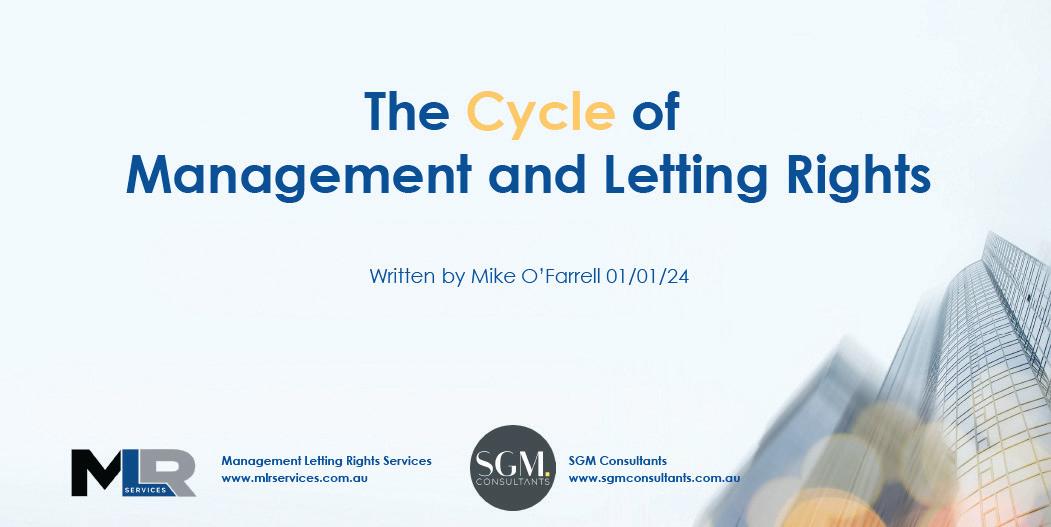








By Roland Franz, General Manager, Body Corporate Headquarters Strata Consulting Services (Qld)
Living in a body corporate scheme means shared responsibility for the maintenance and upkeep of the building and common property.
Understanding what owners must maintain versus what the body corporate is responsible for ensures effective property management and wellmaintained property assets, resulting in an enhanced living experience and market value of your strata property.
The following is a practical guide providing insight to the maintenance responsibilities in bodies corporate. However, this is not an exhaustive guide, and owners ought to consult their body corporate manager and or refer to the Body Corporate and Community Management Act (BCCM Act) and subordinate legislation pertaining to their community titled scheme.
The BCCM Act requires that owners and the body corporate maintain the building and common property.
Bodies corporate are commonly registered under a Standard Format Plan and/or a Building Format Plan, and both may contain allocations of common property for the exclusive use of a particular lot.
A combination of survey plan types may exist in some
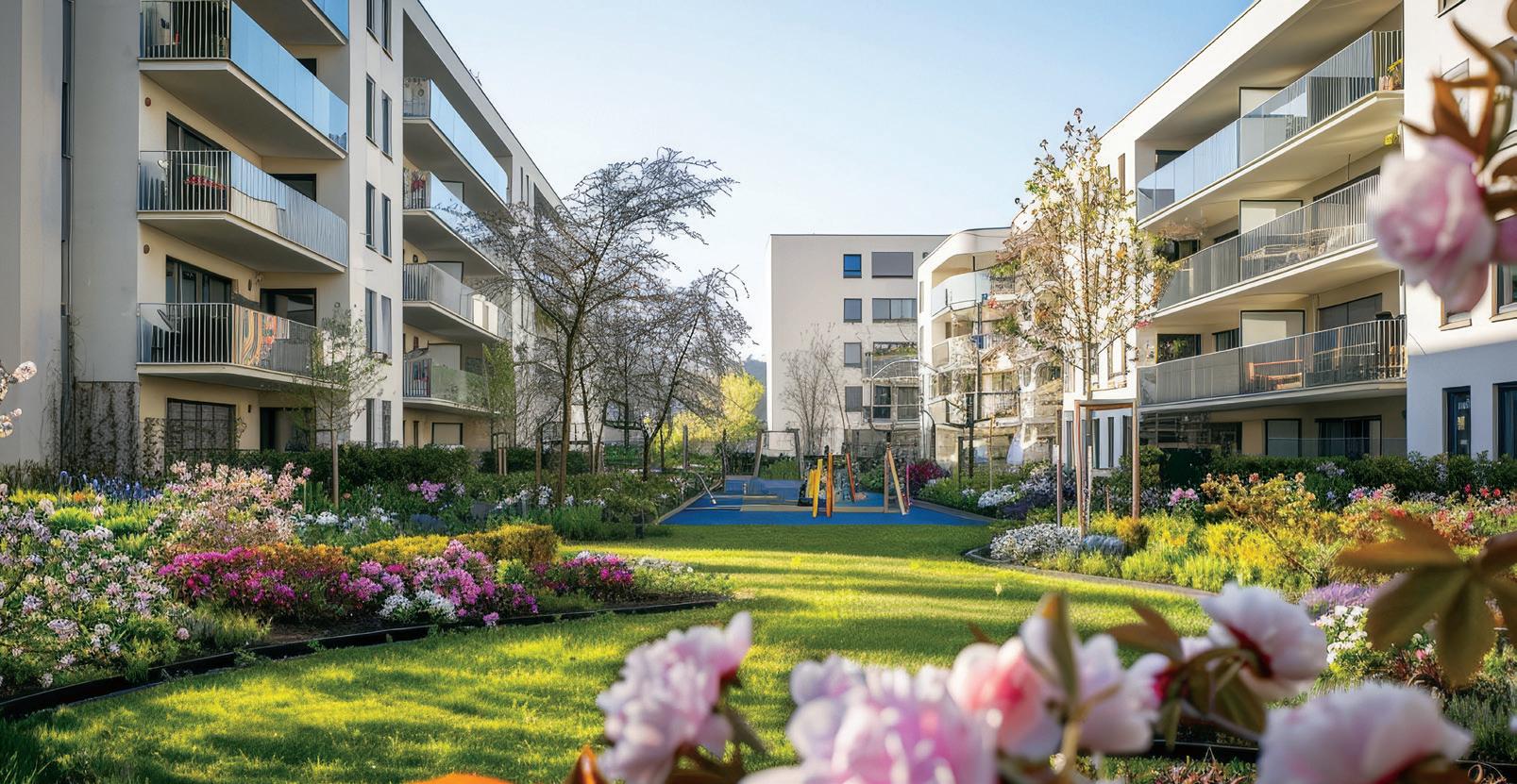
community titled schemes such as townhouses or a housing estate with shared facilities and or infrastructure.
Knowing what type of survey plan is applicable to your community titled scheme is essential to understand the maintenance responsibilities applicable to your lot and your body corporate.
Previously known as the Group Title Plan (GTP), this format is common for townhouses, villas, detached and semi-detached units/villas and housing estates with shared facilities. The lot boundaries are not defined by the physical building structure. The lot boundaries are defined by survey points outside of the built structure. Simply, the owner owns the building and often a portion of land surrounding the building. This results in owners being responsible for maintenance of the building, while the body corporate manages shared infrastructure, driveways, fencing, communal gardens, parks and facilities.
Formerly known as the Building Units Plan (BUP), this format plan applies to multi-story apartment buildings, where lots consist only of internal spaces
defined by the walls, floors and ceilings. However, it may be applicable to some townhousestyle developments also. Under a BFP/BUP, the body corporate owns and maintains the building, including external walls, the roof, balustrades, stairwells, and other shared areas and facilities that are part of the common property.
The following are some typical maintenance scenarios to clarify who is responsible for the repairs based on the survey plan that is relevant to the community titled scheme.
• Standard Format Plan: The owner is responsible for their unit’s roof repairs and upkeep, and any storm damage or wear over time, and general maintenance.
• Building Format Plan: The roof is part of common property and therefore the body corporate is responsible for repairs, maintenance, and ongoing waterproofing.
• Standard Format Plan: The owner must maintain their balcony, external walls, and windows, including repainting and waterproofing.
• Building Format Plan: Balcony balustrades, waterproofing membranes on balconies over another lot or common property and podiums forming part of common property, external walls, and roof structures are the responsibility of the body corporate to maintain.
• Standard Format Plan: Driveways, pathways, hard and soft landscaped areas within an owner’s lot boundary, are the lot owner’s responsibility to maintain whereas shared driveways, pathways and hard and soft landscaping and grounds outside of the lot owners lot boundary, are common property and therefore the body corporate’s responsibility to maintain.
• Building Format Plan: All areas outside of the lot, within the building structure that do not form part of the lot or an allocation of exclusive use to a particular lot are common property, and the management and maintenance responsibility remains with the body corporate.
• Standard Format Plan: The owner is responsible for internal plumbing, while shared pipes and drainage systems outside of their lot or within their lot boundary serving more than one lot, are the body corporate’s responsibility.
Example: Shared gutters and flashings are the body corporate’s responsibility whereas all other gutters and flashings not shared by more than one lot, are the owner’s responsibility to maintain.
• Building Format Plan:
Plumbing servicing multiple lots, and within the boundary structure of the building (walls, floors and ceilings) or located in the common property are maintained by the body corporate. However, hot water serving one lot only is the lot owners’ responsibility, even if located on common property.
Fencing maintenance responsibility, regardless of the format plan (SFP or BFP), is typically a joint responsibility if the fence is a dividing fence between two lots or a lot and common property. However, in all cases, a boundary fence being the fence around the perimeter of the scheme land, is 100 percent the responsibility of the body corporate regardless of whether it adjoins an owners’ lot, exclusive use area or common property.
Exclusive use areas may include but not be limited to:
• Private courtyards or gardens att ached to or adjoining a lot.
• Car parks designated for specific lot owners use.
• Storage spaces within basement areas or otherwise located on common property.
• Rooftop terraces allocated for the exclusive use by an individual lot.
Exclusive-use areas remain common property, but the body corporate usually assigns maintenance responsibilities to the owner. The Community Management Statement (CMS) clarifies these obligations. Unless excused by a by-law for the scheme within the CMS, lot owners must maintain any area allocated to their lot under an exclusive use by-law.
Examples of owner maintenance responsibilities for exclusive use areas:
• Courtyards and gardens: Owners must maintain landscaping, fencing, garden beds, and any fi xtures within their exclusive-use area.
• Car parking spaces: Surface repairs, drainage maintenance, and cleaning typically fall under the owner's responsibility.
• Rooftop terraces: If an owner has exclusive use of a rooftop terrace, unless excused from the responsibility in the bylaws for the scheme, owners must maintain this area including installed structures.
Understanding exclusive-use maintenance responsibilities prevents neglect and ensures property upkeep remains consistent, enhancing the overall appearance and value of lots in the scheme.
When confusion arises over maintenance responsibilities, owners should follow a structured approach to resolution:
Step 1: Consult the building manager and or the body corporate manager for guidance.
• The building manager oversees routine property maintenance and common area repairs and is the first point of contact.
• The body corporate manager provides guidance on legal responsibilities, maintenance boundaries, and relevant bylaws.
• Owners should review their Community Management Statement (CMS) for clarity
on obligations pertaining to their lots and any allocations of exclusive use.
Step 2: Engage the committee for consideration.
• If issues remain unclear, owners can formally submit concerns to the body corporate committee for an opinion or guidance.
• Raising matters through written communication helps resolve disputes constructively.
Step 3: Access information and guidance from the BCCM Commissioner.
• If a dispute occurs, owners should seek information from Queensland’s Body Corporate and Community Management (BCCM) Commissioner's office.
• The BCCM Commissioner’s website provides fact sheets, legislative guidelines, and contact details for assistance.
Owners can call the BCCM Commissioner’s helpline for guidance on maintenance
disputes and responsibilities.
A proactive approach to education and communication allows owners to manage repairs efficiently, reduce disputes, and foster cooperative living within their body corporate scheme. By knowing the diff erence in maintenance responsibilities between Standard Format Plans and Building Format Plans, ensuring proper exclusive use area maintenance, and following the appropriate steps to clarify responsibilities, owners can confidently manage repairs and preserve the condition of their property within the body corporate scheme.
A well-maintained community enhances property values, improves living conditions, and fosters a cooperative environment for all owners, ultimately resulting in a better strata living experience.
Remember, if in doubt—ask.
Suggested topics for future comment are welcome contact via editor@resortnews.com.au.






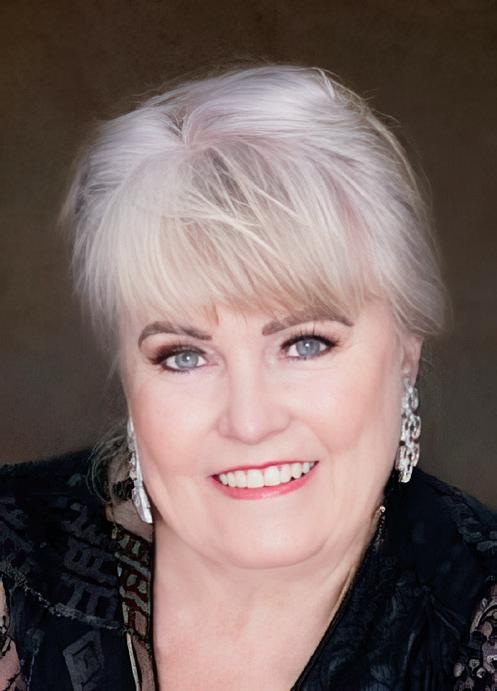
By Marion Simon, MLR Manager, Boulevard North Holiday Apartments
I was fortunate to read the March 2025 edition of Get It magazine and came across an eye-opening article titled What Is Retail Return Abuse?
In short, retail return abuse refers to the misuse of return policies by consumers, resulting in significant financial losses and operational challenges for retailers. Common forms include “wardrobing” (buying items to wear or use once, then returning them), returning used or damaged goods, and exploiting return

windows after seasonal events. Unfortunately, it states, this practice accounts for nearly five percent of all returns, amounting to approximately $24 billion in annual losses for retailers.
But it’s not just about lost revenue. Operational costs rise due to the need to process returns, restock inventory and manage customer service enquiries. These complications can lead to overstocking or stockouts, and in some cases, retailers may be forced to increase prices to recover losses.
On top of that, habitual return abusers are often experienced and may become demanding or even aggressive. This behaviour can take an emotional toll on staff and contribute to a negative work environment.
The author of the article suggests that retailers may need to implement stricter return policies, such as requiring receipts and shortening return windows. While these measures could help reduce fraudulent returns, they also risk alienating loyal customers with genuine return reasons. An alternative approach could be to better educate consumers about the broader impact of return abuse on businesses and pricing.

So, how does this article relate to the management rights and accommodation industry?
It immediately made me think about the refund and cancellation abuse we’ve experienced, and the clear parallels with retail. Like many in our industry, we’ve been abused, threatened, blackmailed and bullied by guests exploiting cancellation and refund policies.
Reflecting on this, I began to consider the types of refund abuse we regularly deal with and compiled the following list:
Guests insisting on cancelling, despite clear and concise cancellation policies. The reasons range from bad weather and changes of mind to unexpected health issues. Our policy outlines the terms and conditions and politely recommends travel insurance. When a booking is made, Resly and most online booking agencies have an insurance option to cover any eventualities. Yet many guests skip this small added cost and later expect managers or owners to absorb the financial loss.
We’ve all encountered guests who
arrive and immediately express dissatisfaction with the building, location or service. Regardless of what solutions are offered, nothing seems to satisfy them. When there’s no legitimate reason behind the complaints, the motive becomes clear, they’re seeking a refund, discount, voucher or compensation. This is one of the reasons we removed our property from Airbnb. Their policy often favours guests and will issue refunds for almost anything. In many cases, hosts aren’t given the opportunity to respond. We’ve spent hours trying to prove that guests were not being truthful.
These, and requests for postdeparture refunds through online agencies are perhaps the hardest to deal with. Guests complete their stay without a single complaint, only to email afterwards with a list of alleged issues that “ruined” their holiday. By that point, there’s little a host can do. A negative review often follows soon after.
This one frustrates me the most. I call it legalised theft. A guest stays, enjoys the property, and later files a chargeback,
claiming the transaction was unauthorised or the card was stolen. We’ve introduced systems to reduce this, but it still happens, occasionally. I’ve contacted banks, asking for two-factor authentication. If online retailers can offer this, why can’t we?
According to chargebackgurus. com, global chargeback losses in travel and hospitality reached around $25 billion in 2023. While I couldn’t find exact figures for Australia, AusPayNet reported $762 million in total card fraud in 2023. Notably, card-notpresent fraud, including online and phone transactions, made up 90 percent of that, totalling $516.8 million in 2022.
These scenarios are often accompanied by aggression, bullying and threats to report you to the Office of Fair Trading, the ACCC, a consumer protection agency or an ombudsman. Then comes the spoken or implied threat of a bad review. In my view, reviews have become the preferred weapon in the refund/ complaint’s arsenal, and one that is often used very successfully.
I also often question the authenticity of reviews. Some
Many in the industry tell me it’s easier to accept the cancellation and absorb the loss than deal with an unhappy guest.
five-star reviews are written by friends or family, while others can be removed, for a price. These practices are widely known and undermine trust in the system.
Of course, some guests experience legitimate service or maintenance issues. But in my experience, these are the exception. More often, complaints are used as leverage to manipulate outcomes.
Many in the industry tell me it’s easier to accept the cancellation and absorb the loss than deal with an unhappy guest. The potential bad review just isn’t worth the fight. However, I truly debate if this is the correct action to take.
Are we removing responsibility from guests and enabling behaviour that creates unnecessary costs and stress for owners and operators?
The global tourism and hospitality sector generates an estimated $3 trillion annually, yet loses between five and six percent to fraud, including chargebacks. While I couldn’t find specific data on the cost of cancellations in our sector, SiteMinder reports that 25 percent of all accommodation bookings were cancelled in 2021, dropping slightly to 21 percent in 2022. These figures highlight how significant cancellations are in our industry.
So where do our responsibilities end, and where do those of the guest begin?
I believe the lines have been blurred for too long. Without clearer boundaries and shared accountability, we risk reaching a point where the financial and emotional toll of cancellations and chargebacks becomes unaffordable, draining and an emotional toll.
I would love to hear your thoughts. If there are any topics you would like me to explore or discuss, please email me at marion@ boulevardnorth.com.au
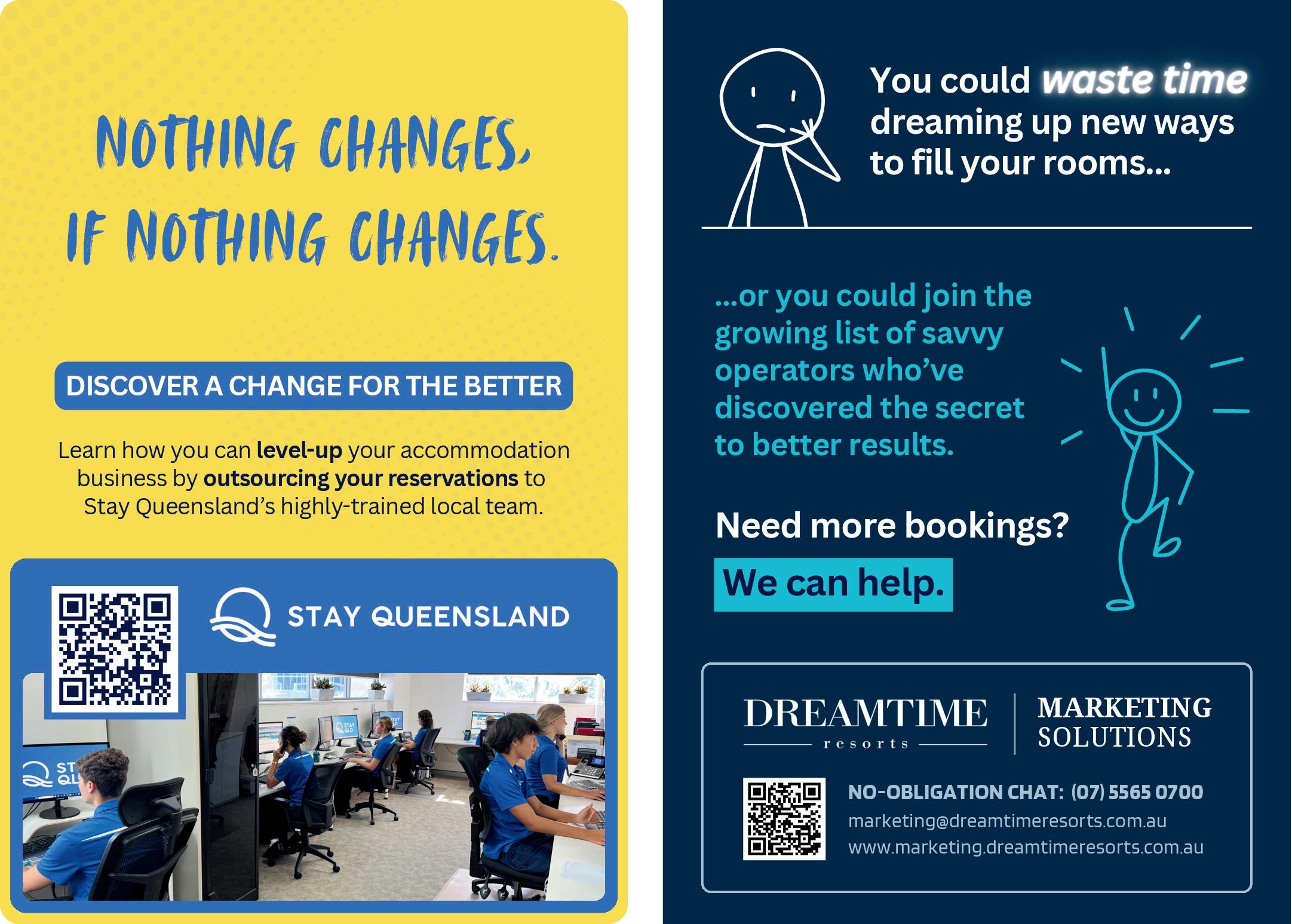

By Sam Steel, Co-Founder, Resly
Staff turnover has always been a challenge in the hospitality industry, but it can feel relentless for Australian resort operators, especially in regional or seasonal locations. Roles are often casual, the hours can be unpredictable, and competition from other industries (not to mention international travel) means many employees don't stick around long enough to truly grow into the role. But that doesn't have to be the case.
Building a positive, resilient resort culture isn't just about offering good pay—it's about creating an environment where people want to stay, contribute, and thrive. Here's how to build that kind of culture.
1. Invest in crosstraining for confidence and flexibility
When employees understand how different parts of the resort operate—from housekeeping and the front desk to food and beverage—they gain confidence and feel more capable. This creates a stronger, more agile team that can step in when someone's away or when operations are stretched during peak periods.
Cross-training also sends a powerful message: We see you as more than just a job title. We're investing in your growth.
Pro tip: Schedule monthly jobswap days or cross-department shadowing for junior staff.
Never underestimate the impact of a simple “thank you” or shout-out in a team meeting. Staff who feel seen and appreciated are far more likely to stay engaged and loyal. Recognition doesn't always need to be formal or monetary—it can be as easy as a handwritten note, a team lunch, or a leaderboard of positive guest feedback.
Want to level it up? Create a monthly “Resort Star” award, voted by peers. Small gestures, big results.
Work-life balance isn't just a nice-to-have anymore—it's expected. And in regional Australia, it's especially important to accommodate school pickups, community events, or other personal commitments. People will often repay that flexibility tenfold if you can be flexible with rosters.
Use rostering tools or apps that allow staff to view, and swap shifts easily. Clear communication goes a long way in reducing stress and improving morale.
Your frontline team often knows more about what's working (and what's not) than anyone else. Invite them into conversations about guest experience, operations, or even minor upgrades. When people feel heard, they feel empowered. Staff suggestion boxes (physical

Building a positive, resilient resort culture isn't just about offering good pay
or digital), quarterly town halls, or informal “open floor” discussions can generate great ideas—and uncover small changes that make a big impact.
Many resort staff, particularly younger ones, don't stay long simply because they don't see a future. Change that narrative by sharing success stories of people who moved from casual roles into leadership positions—or offer training and certificates that support career progression. Finding staff is only half the problem—upskilling them is just as critical. Some resources provide accessible training for new job seekers looking to build careers in management rights and the accommodation industry. Programs can be powerful onboarding tools, especially when you're hiring from outside traditional hospitality backgrounds. Partner with local TAFEs, tourism bodies, or platforms
like QTIC to offer microcredentials or subsidised training. A bit of structure goes a long way in helping people commit to the long game.
The resorts that retain great people aren't just lucky—they're intentional. They treat staff like people, not positions. They build environments where people feel trusted, respected, and part of something worthwhile.
Yes, it takes time and effort. But the return on that investment—better service, lower recruitment costs, higher morale—is worth every second.
If you're still spending more time running your trust account and chasing paperwork than supporting your team, maybe it's time your systems caught up. Update PMS tools that help operators free up time, streamline operations, and focus on what really matters—their people.

By Kelley Rigby, Unit and Townhouse Sales Specialist, Rigby Property Group
In today's rapidly evolving property management landscape, the conversation about investor retention has become more critical than ever. While this topic might feel uncomfortable, it stems from a genuine desire to see you succeed in an increasingly competitive market.
External property management agencies have significantly upped their game in 2025. Their marketing strategies have become more advanced, their digital presence more robust, and their service offerings more comprehensive. If you're not actively demonstrating your unique value to investors and cultivating meaningful relationships, you risk losing them to these savvy competitors.
Few experiences sting more than receiving that dreaded change of management notification. What is particularly concerning is when investors fail to recognise the substantial benefits of having an onsite manager. If your investors can't articulate the advantages of having someone who:
• Is available seven days a week, including before and after standard hours.
• Physically passes their investment property daily.
• Can address minor repairs promptly.
• Provides immediate assistance to tenants.
• Has a personal financial stake in the property's success.
Then it's time for some honest self-reflection about your service delivery. When external agents successfully recruit your investors, pointing fingers won't solve the problem. Instead, focus on what you can control: elevating your own service standards.
Take a dedicated block of time (perhaps a full day) to focus exclusively on your investor relationships. Demonstrate courage by initiating direct conversations about their experience with your management.
Ask specifically:
• How would you rate our management performance?
• What aspects of our service do you value most?
• Where do you see opportunities for improvement?
For investors who might be uncomfortable providing feedback verbally, offer email as an alternative. Many people prefer expressing constructive criticism in writing rather than during a live conversation.
The crucial next step is acting on this feedback. Implement changes, exceed expectations, and most importantly, document and communicate everything you do. Remember: you can't sell a secret. Make your value visible.
Develop a regular investor newsletter that highlights
specific examples of your above-and-beyond service. Include concrete instances where your onsite presence made a tangible difference to property performance or tenant satisfaction. Supplement these stories with investor testimonials that emphasise the unique benefits of your management approach.
This positions you on the offensive rather than the defensive, showcasing your value before competitors have a chance to question it.
Every successful business faces
competition, it's inevitable and actually beneficial. Competition keeps us accountable and drives innovation. Rather than fixating on competitors' tactics, channel that energy into strengthening your own investor relationships and service delivery.
When you consistently demonstrate exceptional value and maintain open communication with your investors, you create relationships that are resistant to competitive pressure. By focusing on your unique advantages as an onsite manager and making those benefits abundantly clear, you'll build a resilient business that thrives regardless of market challenges.


By Mike Phipps, Mike Phipps Finance
“If you would persuade, you must appeal to interest rather than intellect.”
I’m fascinated by those who can negotiate effectively, and this month’s missive pivots on this very skill. But first, some gratuitous travel stories.
Each year the managing director and I attend the Cooly Rocks On festival at Coolangatta on the Gold Coast. It’s a celebration of old cars, cool music, and older punters, and it seems to get bigger every year. To our delight, the crowds seem to actually be getting younger, albeit everyone seems to be younger when you get to a certain age. With attendance exceeding
150,000 and over 900 cars displayed over the four days of the festival, it’s a sensational example of a destination-driven event that raises awareness for the region, and tips millions into the local economy.
This year the MD thought it would be fun to take a road trip down the NSW north coast in the two weeks prior to the festival. As always, I procrastinated while she plotted.
End result, two weeks booked at various locations with me none the wiser. We dropped our ’69 Mustang off at our Cooly lodgings, where the management had kindly agreed to store the beast, and we headed south in a more comfortable and modern conveyance. All I knew was that we would be on the road for two weeks and I was paying. To her credit, the MD did suggest all reservations were designed to give me a broad appreciation for regional accommodation options and something to write about.
Interestingly enough, I ended up being aware of all the geographic locations we stayed at, but had never heard of any of the actual businesses.
First stop Byron Bay, and a place called Byron Suites. I guess I’ve driven past maybe 30 times over the years and never noticed this superb
establishment. Beautifully presented and conveniently located a short stagger to the famous Beach Hotel, this place is special. The general manager turned out to be a lovely lady who had an intimate knowledge of the property and had worked for a famous previous owner of the pub. We asked how they managed to have the property so well presented with multiple owners in a strata scheme. Simple. While the property has the appearance of a management rights, the whole shebang is owned by one party. No problems with consistency of presentation, and I’m guessing no shortage of
resources. The owner bought the Beach Hotel recently for a reported $140 million.
I am pleased to also report that Byron has returned to its old and charming vibe after a period that seemed to us to be a bit too close to the less appealing aspects of Nimbin by night.
With lots of rain predicted we headed to our next destination, the beautiful Macleay Valley and, more specifically, Salt at South West Rocks. A collection of thoughtfully appointed and perfectly presented cabins on the river was to be home for the next three nights.
Mother Nature had other plans…

In a repeat of my recent ill-advised trip to floodaffected western Queensland, it rained. And rained. And rained. Towns in the area were cut off, farms devastated, businesses destroyed, and as the catastrophe unfolded, three people were dead and 50,000 had been isolated. Our three-night stay became six as roads were cut and access was controlled by roadblocks. Supplies to town became scarce, and in a flashback to COVID-era habits, we observed much panic buying, with toilet paper top of the list. Our hosts at Salt acted wonderfully. A reduced nightly rate given we couldn’t leave, regular updates as to flood conditions and most importantly, plenty of toilet paper. For the record, there are worse places to be trapped, the surf club is a ripper, and our small inconvenience was nothing compared to the disaster many faced.
Sadly, our extended stay at South West Rocks meant we needed to cancel our next destination, which had been fully paid. The manager understood the situation and, combined with some persuasion from the MD, provided a full refund. Needless to say, we will go out of our way to stay next time.
For me, our next destination was the find of the trip. The Moorings Lakehouse at Coomba Bay, near Forster, is a hidden gem. It’s only got a few rooms and a cottage, and there’s no formal reception. The MD had booked the cottage, and we had a great time doing very little. Cold, wet weather and a fireplace make for some serious wind-down time. The gentleman who looked after the garden turned out to be a top bloke who kept the firewood stocked and helped with our bags. Again, the whole place is owned by one family, and they have created something pretty special.
A couple of nights in Yamba, on the way back to Cooly, provided an interesting lesson. The property had clearly been renovated to a high standard at some point, but small details let it down. I suspect the challenge is to maintain consistent presentation standards after the reno is complete. No point having marble tiles on guest throughfares and then using the space to store roll-away

“Better to have your enemies inside the tent pissing out, than outside the tent pissing in.”
beds and spare crockery. No point in having a beautifully appointed reception area if the back of house is a train wreck and the door is left open.
So, back to Cooly and the same unit we stay in every year. The resort is, in my view, the most appealing on the southern end of the Gold Coast. The staff are always super helpful, the secure parking is easy, the common areas are well-presented, and the unit has a great layout and a cracking view. But boy oh boy, is it tired! The contrast between the single-owner accommodation we had been staying in, and this strata-titled unit could not have been more pronounced. I am sure that management has encouraged the owner to spend a few bob, but it’s equally clear that no investment is being made. I wonder if this lack of consistent presentation in leisure-based strata schemes presents an ongoing risk, and if so, what do we do about it? Clearly, owners have to be persuaded to spend money and that’s not always easy. I’m a fan of comparative returns based on room type, with inferior apartments being priced accordingly. Admittedly this was a whole lot easier before Airbnb and the like came along, but I think still a strategy worth pursuing. Encouraging open and honest guest reviews and
sharing these with the owner will work in certain circumstances but may be more likely to antagonise, if not presented in a constructive fashion.
I’ve seen managers have some success putting together renovation packages and even paying for them with payback terms via the letting appointment. This arrangement requires a level of trust which may be at odds with the moral compass of some owners. Caveat Emptor, as they say.
I used to be a fan of the guilt trip strategy. You know the one. Your unit is horrible and it’s impacting the reputation of the property, and it’s not fair to the owners who have undertaken renovations. I’ve
come to understand that some owners don’t care. As long as the money is rolling in why spend a cent? That just leaves the threat of terminating the Form 6, which I don’t recommend unless the unit presents an actual health and safety risk. The likely outcome will be a shift by the owner to an online booking platform, an advocate among owners to follow suit and an anti-onsite management owner. Better to keep them on side, share your business plan and vision and pray that at some point the message resonates.
It's a bit crude, but Lyndon B Johnson said it best….
“Better to have your enemies inside the tent pissing out, than outside the tent pissing in.”




By David Sawers, General Manager, GuestPoint
The Queensland accommodation industry is no stranger to evolution. While my past articles explored how trust accounting software and owner performance reporting are transforming property management behind the scenes, the guest experience is quietly undergoing its own revolution.
The expectations of today’s travellers are much higher than ever before, and this new wave of technology now plays a pivotal role in not just
meeting but surpassing their expectations. This evolution marks a crucial trust point, where embracing innovation becomes central to delivering remarkable guest experiences.
The era of paper arrival forms and jangling metal keys is rapidly fading. From its dying embers, a new dawn of digitalisation and contactless experiences is emerging. In the age of smartphones and instant gratification, the modern guest demands seamless service at every touchpoint. From the moment they start searching online to their post-checkout communications, guests want convenience, speed, and without doubt, personalisation.
For Queensland’s hotels and resorts, adapting to this new digital guest journey is no longer optional. Mobile checkins, contactless payments, and real-time booking confirmations are rapidly becoming standard. Yet many properties still rely on legacy systems that fail to meet these demands, resulting in slow check-ins, booking errors, or miscommunication.
Intelligent property management systems (PMS) streamline every step of the guest journey, reducing wait times and eliminating frequent friction points. For many properties, this upgrade represents the moment they move from legacy limitations to seamless efficiency; a trust point where innovation meets reliability, and guest expectations are redefined.
Behind the scenes, it is the integration of multiple systems that truly elevates the guest service. PMS platforms nowadays don’t just handle reservations; they either have inbuilt or sync directly with multiple channels like channel managers, housekeeping schedules, point-of-sale systems, and payment gateways to create a seamless natural flow.
This level of connectivity allows teams to focus more on the guest experience and less on boring non-profitable administrative tasks, therefore creating a warmer, more responsive overall hospitality experience. The benefits
multiply as errors decrease, response times improve, online reviews become more positive, new guests are drawn in, and satisfaction continues to grow.
Modern accommodation management is shifting from transactional interactions to meaningful relationships. Smart platforms enable property managers to automate poststay surveys, loyalty program enrolments, and targeted offers that keep guests engaged long after checkout. The trust point here is simple: allowing technology to humanise hospitality, not replace it.
Technology will not replace human touch; it should be designed purely to enhance it. By freeing team members from repetitive tasks, managers and teams can invest more time in creating memorable experiences, whether that's a personalised welcome message, responding promptly to guest feedback, or tailoring unique packages for repeat visitors.
The best hospitality experiences feel effortless because the technology supporting them is invisible. When guests sense genuine care combined with smooth service, trust grows, and loyalty follows.
Exceptional guest experiences are not only good for reputation, but they are great for business. Happier guests leave better reviews and recommend your property to others far and wide. Higher ratings increase direct bookings, reduce reliance on costly third-party platforms, and improve occupancy rates.
This virtuous cycle translates directly into stronger financial performance for both property managers and owners. Using guest experience tools in your PMS boosts efficiency and generates new revenue through upselling, loyalty programs, and targeted marketing.
The bottom line is clear: investing in technology that enhances the guest journey, pays dividends well beyond compliance and
Looking

back-office management. Recognising this return on experience is a clear trust point for forward-thinking operators.
The heart of any accommodation operation is its PMS. But it’s also the heartbeat of the guest experience. Choosing the right tech stack means smoother arrivals, clearer communication, faster issue resolution, and the ability to personalise service without increasing workload.
For Queensland’s accommodation
industry, this is an opportunity to stand out in a competitive market where every guest counts. As trust accounting and owner performance solutions mature, the next frontier is harnessing technology to deliver truly exceptional guest experiences that turn first-time visitors into lifelong customers.
Technology is reshaping accommodation management at every level. While trust accounting builds a foundation of compliance and owner confidence, it’s the guest experience that drives reputation, repeat business,
and long-term success. Innovative, connected systems let properties deliver the fast, personalised, and effortless service today's guests demand, all while improving operational efficiency and profitability.
The future of hospitality isn’t just about what happens behind the scenes; it’s about creating moments that guests remember and return for. It all begins at the trust point when you decide to make smart technology your partner in guest experience.
to buy or sell a management rights business? Trust the experts.


At Hotel Resort Sales, we specialise exclusively in management rights sales. With years of industry experience, we know what it takes to achieve premium results. Whether you're selling a single complex or acquiring a large portfolio call us today to have a chat.
Proven track record in permanent, holiday, and mixed-use management rights, in-depth market knowledge and personalised service. Strong network of qualified buyers and industry professionals. Confidential, strategic, and results-driven approach.
When you're entering the industry or ready to sell, Hotel Resort Sales is the partner you can rely on.






This Friday afternoon event was nothing short of fabulous, spent in the company of talented, driven women from across the industry. The energy in the room was light, fun, and full of creativity, reminding everyone of the power of connection and collaboration.


A heartfelt thank you to Tania Stewart and the SSKB team for hosting such a vibrant gathering. Your support and commitment to community is truly appreciated. There’s something incredibly empowering about being surrounded by like-minded professionals who are passionate about what they do. Here’s to more events that uplift, inspire and push us all forward.
Gold Coast Luncheon
Date: Wednesday, August 13.
Venue: To be confirmed.
Brisbane Luncheon
Date: Friday, August 22.
Venue: To be confirmed. All Women In events welcome





The ARAMA TOP Awards are an important opportunity to acknowledge the hardworking professionals in our community.
Whether you can attend the dinner or not, we encourage all members to get involved in the nomination and voting process. Your voice matters! And so does recognising excellence in our industry.
When: 6pm, September 12, 2025
Venue: The Star Brisbane



Celebrating standout operators across tourism and accommodation — Resly style!
Nominations are open until August 30, so get in quick to recognise those going above and beyond in our industry.
Presale tickets are available now!




When: Friday, October 10, 2025
Venue: Grand Ballroom, The Star Casino, Broadbeach
Theme: Safari Luxe – think glamorous adventure with earthy tones, bold prints and wild elegance. Time to plan your outfit!
Visit thebestofawards.com.au for all the details.


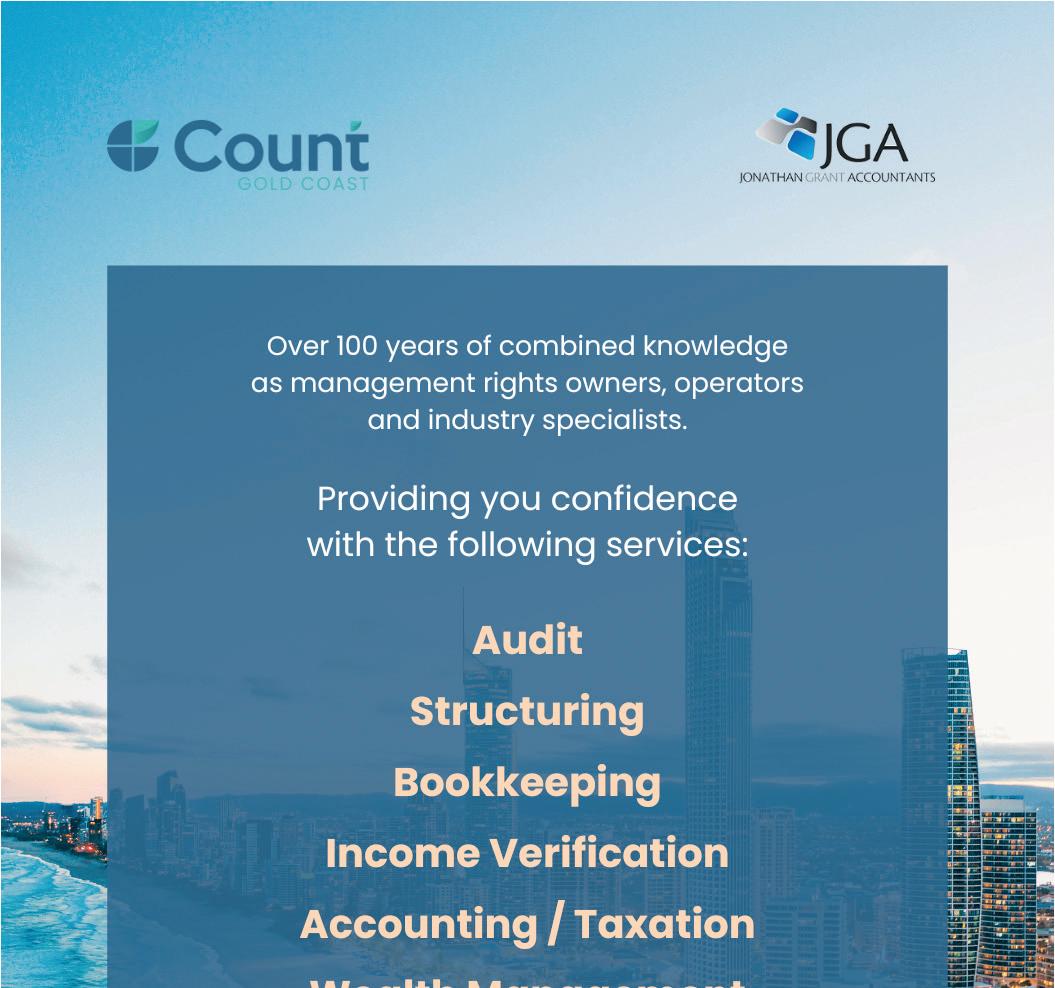

New South Wales Amber




Holiday Management Rights
Asking Price: $1,400,000 Net Profit: $378,357
Michael Philpott 0433 137 927


Exclusive | Permanent Management Rights
Asking Price: $500,000 Net Profit: $105,000
Meagan Monk 0459 693 160






8047
Mixed Letting Management Rights
Asking Price: $1,640,000 Net Profit: $231,074
Phil Trimble 0418 478 966


Permanent Management Rights
Asking Price: $1,150,000 Net Profit: $102,048
Bill He 0439 288 960






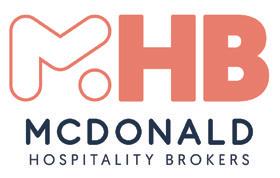













































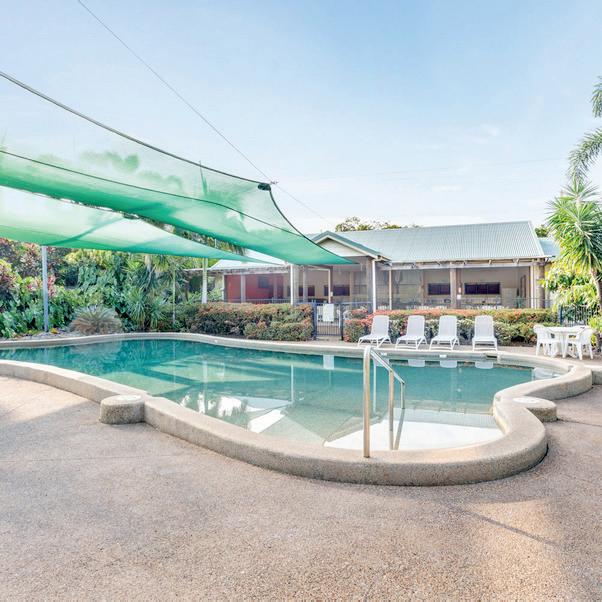




















Queensland,

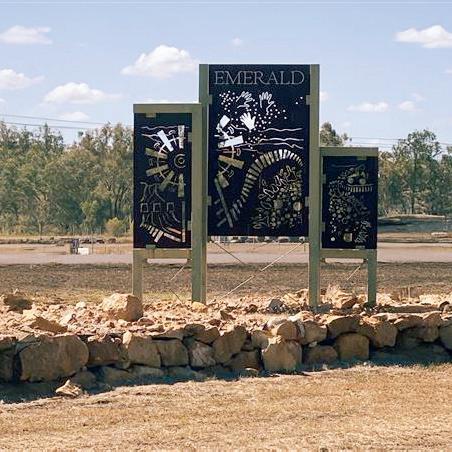




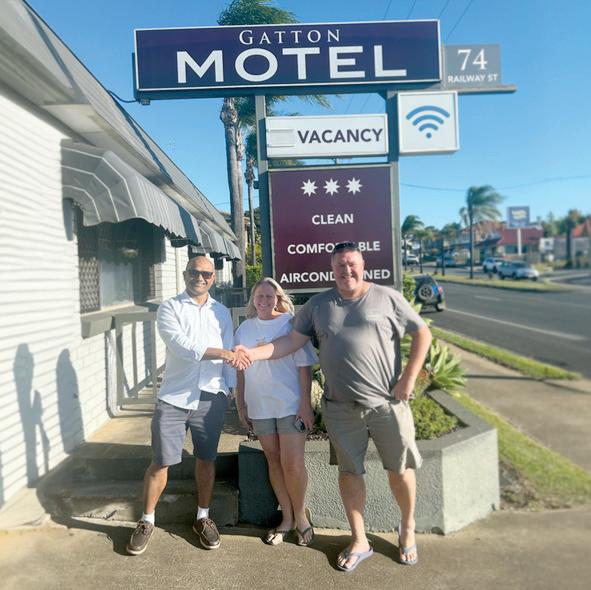




















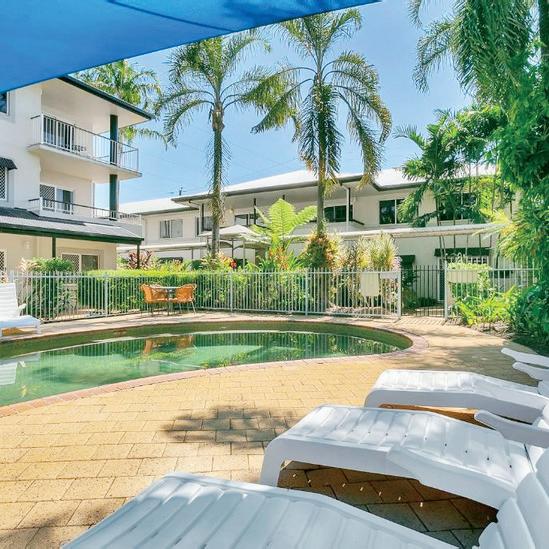






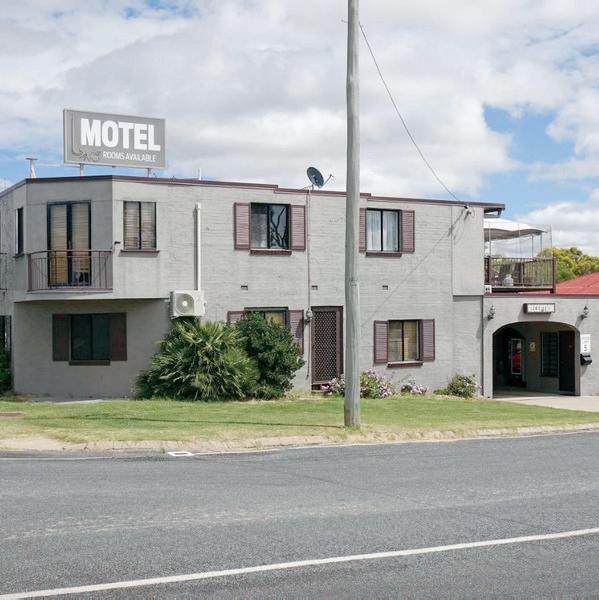




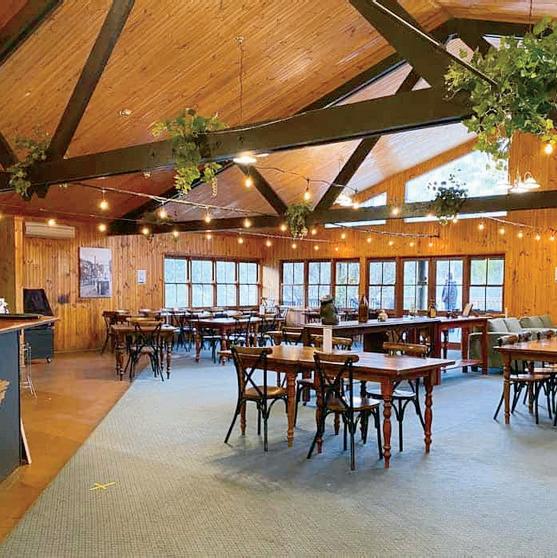





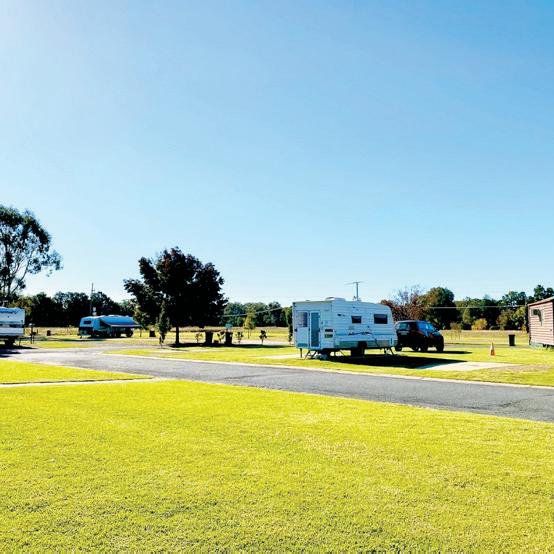





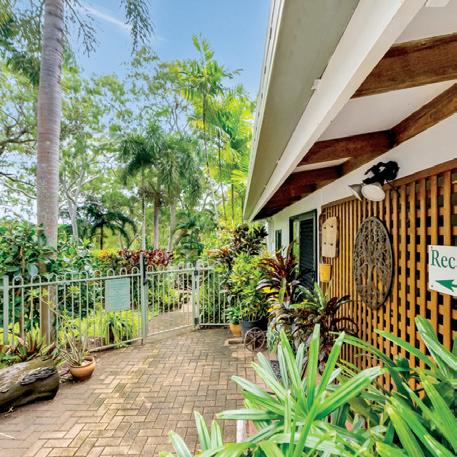






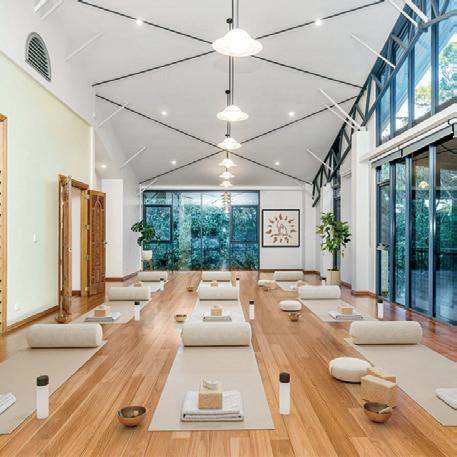




















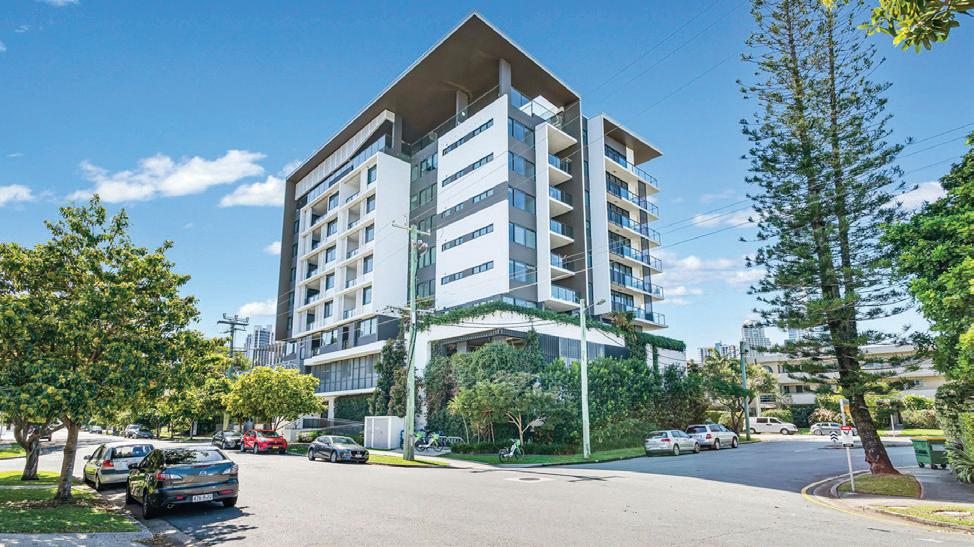
Contact: Derek Johnson, +64 27 240 1285 derek@coffeys.co.nz

Contact: Dennis Mackenzie, 0401 990 044 dennis@resort-realty.com.au
Contact: Tim Crooks, 0417 544 562
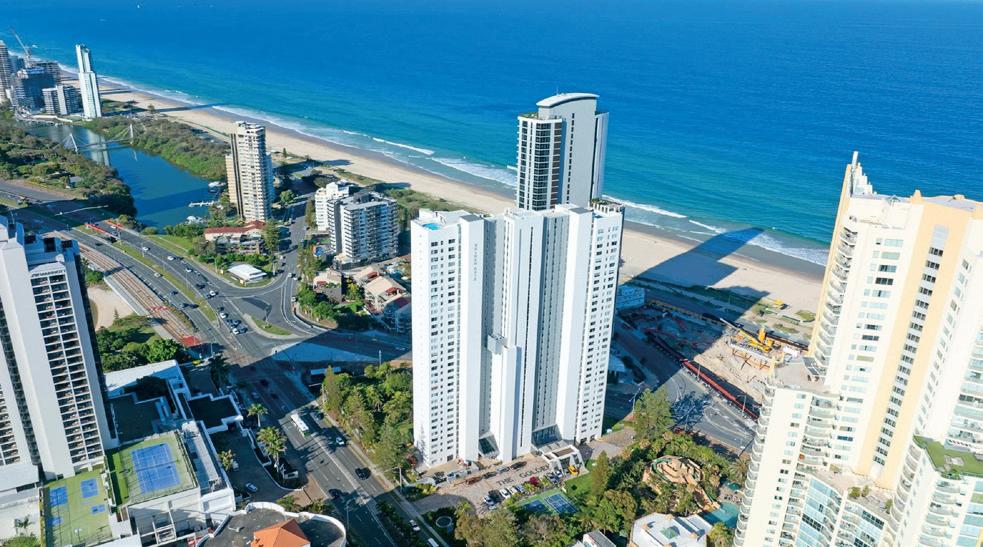
Contact: Lyn Pearsall, 0452 631 253 lyn@1agencyqld.com.au



By Mandy Clarke, Editor
Tucked into one of Brisbane’s most vibrant inner-city neighbourhoods, Fortitude Valley’s Miro and Atrio Apartments may look like typical boutique accommodation on the surface. But under the care of Craig Whye, they are becoming much more.
Craig has worked in the travel and tourism industry since the age of 18, spending the past 15 years in hotels and management rights. During that time, he managed a prominent CBD property before taking a leap in January 2024 to become the owner and managing director of the management rights for both Miro and Atrio Apartments.
His journey from manager to hands-on business owner reveals just how personal, complex and rewarding the world of management rights can be.
“Miro and Atrio are very different in style, but they sit side by side and complement each other beautifully,” Craig explains.

Miro Apartments opened in 2008 and spans three levels.
Inside, it boasts tranquil internal gardens that flow through the building, offering a calm contrast to the buzz of the Valley outside.
“Miro is a real hidden gem,” says Craig. “The lush gardens
create this peaceful atmosphere you wouldn’t expect in the heart of Fortitude Valley.”
Atrio, which launched in 2014, rises to seven levels and features a striking open-air atrium through its centre. “Atrio has a really modern, open design,”
he adds. “The atrium running through the middle gives the building a light, airy feel that residents really appreciate.”
Both buildings offer a mix of one- and two-bedroom apartments. They are mixeduse, with short-term lettings, long-term rentals, and owner occupiers and are located just a short stroll from the everpopular James Street precinct. While the buildings had solid bones, Craig has already overseen some key improvements. “Miro underwent a full external repaint when I came on board,” he shares. “And by the end of last year, Atrio had completed a full electronic access upgrade. Apartment doors are now keyless, giving owners secure, 24/7 access.”
Making the move from property manager to business owner is no small step. For Craig, the transition into ownership brought new challenges, greater responsibility, and a steep learning curve.
“I’d been managing properties for a long time, including a flagship CBD hotel for over a decade,” he says. “But I’d never been the owner. There’s a big


difference between being a manager and being responsible for the entire
The purchase process itself was complex, but Craig was fortunate to have a strong support network guiding him through it. “I worked with Joshua Hayden at Mike Phipps Finance, along with Mike Phipps and Transaction Management Consultants (TMC). I can’t speak highly enough of their professionalism and support,” he says. “Their knowledge of finance, syndicates and the management rights sector helped reduce the stress and uncertainty that often comes with a deal like this. Their
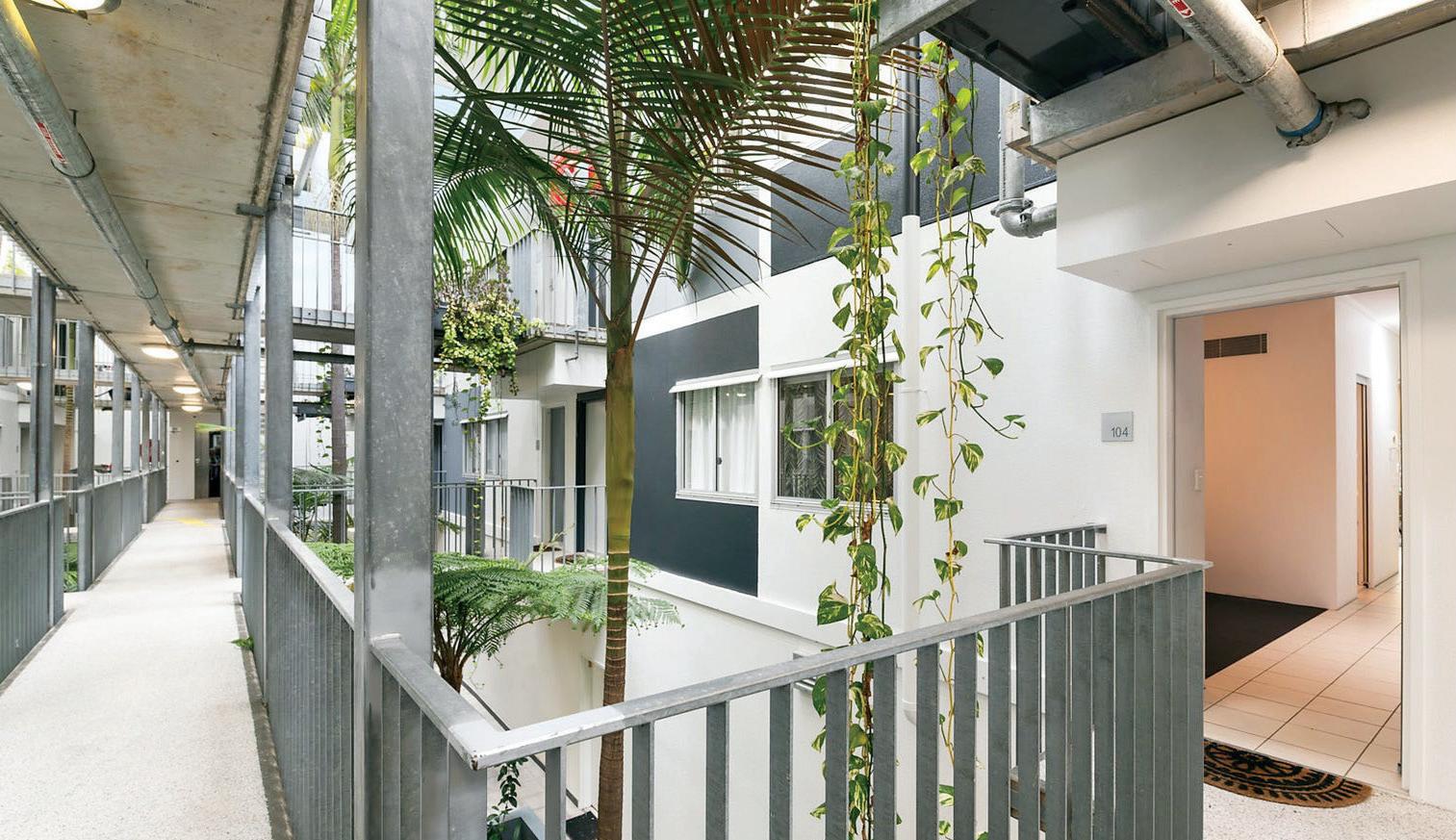
“Building trust has been my biggest win so far,”
calm, experienced approach made all the difference.”
Craig also worked closely with Holmans Accountants throughout the process and was especially grateful for the support of Chantel Du Plessis. “Chantel was fantastic. Her advice was practical, clear and tailored to the realities
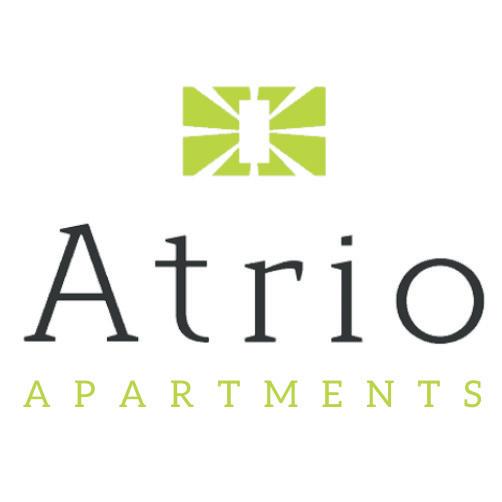
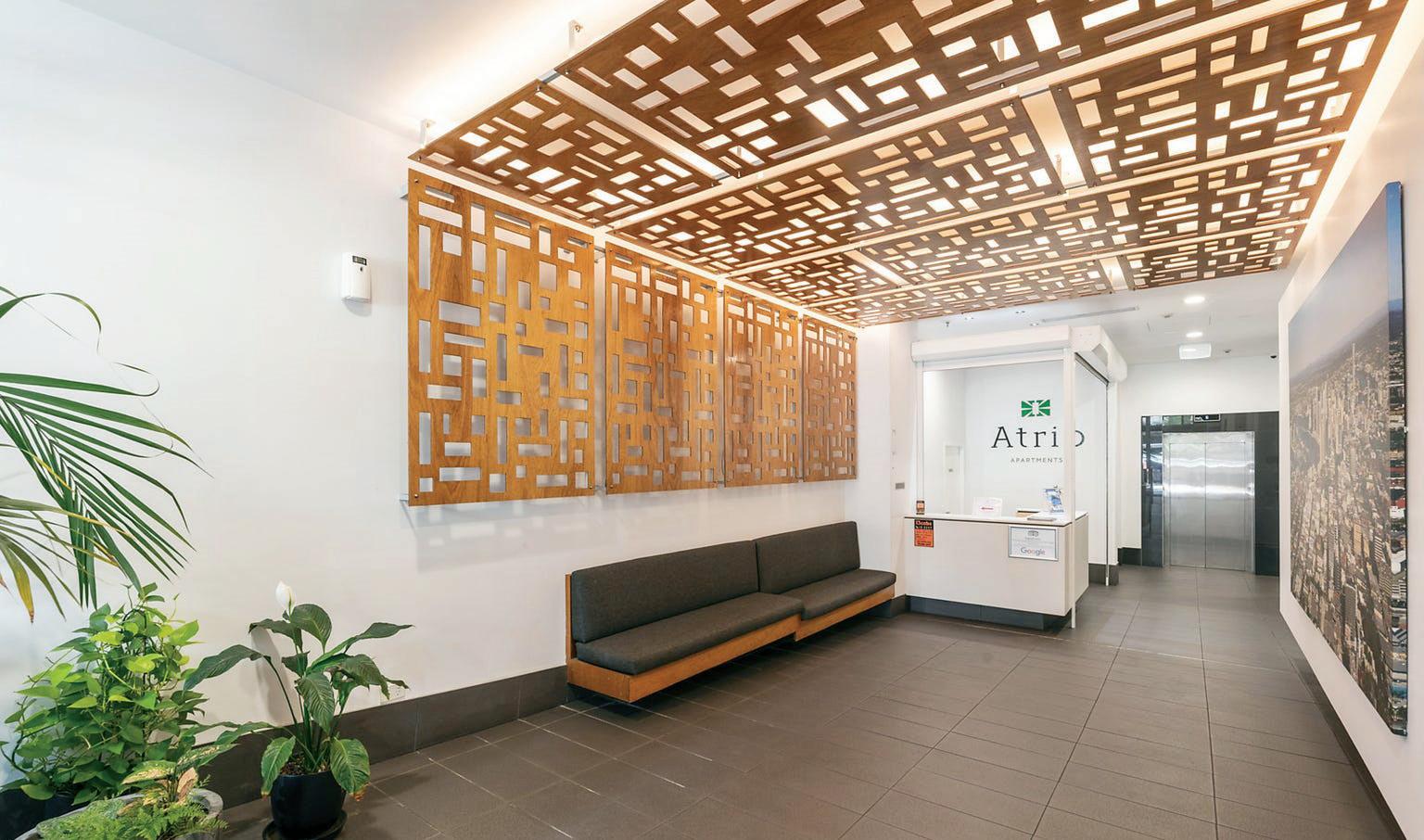

of management rights. She helped ensure the financial side of the deal was rock solid, which gave me the confidence I needed to move forward.”
With the guidance of this experienced team, Craig was able to approach the purchase with clarity and assurance, ready to begin this next

chapter as a business owner.
Craig also reached out to an old mentor for guidance. “I called my former managing director from a family-owned business I used to work for. He now owns several management rights in Noosa and gave me great advice during the transition.”
“They’re unique. There’s nothing else quite like them in Brisbane. I could see their potential immediately. With the right care and investment, they can really stand out in Fortitude Valley. But that will take time.”









Craig currently manages around 55 apartments across both properties. He is supported by a capable team that includes an onsite manager, reception staff, a maintenance officer and outsourced housekeeping.
“No two days are ever the same,” he says. “Some are fullon with guest activity, others are focused on maintenance or building projects. It really depends on what’s happening across the sites.”
He continues, “Time management is critical when you’re overseeing two buildings. Having the right team in place makes all the difference. You can’t do it all yourself.”
One of his first operational focuses was improving reception efficiency. “We refined some processes, tightened up procedures and made sure the team had the right tools. Even small changes can create big results.”
He also tackled a major issue in maintenance. “When I arrived, there were no preventative maintenance agreements in place. It showed in increased costs, inefficiencies and reactive repairs. I worked with both body corporate committees to audit the properties and put solid agreements in place. Preventative care is key to protecting the buildings and the budget.”



A seamless and comprehensive approach to property care, ensuring that every aspect of your property is taken care of with excellence.
• Painting & Remedial
• Facade Maintenance
• Height Access Solutions
• Facade Installs
• Anchor certifications
• Dilapidation Reports
• Waterproofing
• Complete Garden Maintenance
• Pool Maintenance
• Commercial Cleaning
• Hedging & Trimming
• Pressure Cleaning
• Tree Lopping & Mulching
• Irrigation & Sprinkler
System Repair
• Protective Coatings
• Roof Repaints
• Floor Repaints
• Preventative Maintenance
• Apartment Complex Re-paints
• Body Corporate Projects
• Interior & Exterior
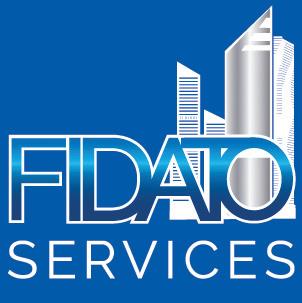

Whether it’s owners, investors, residents or committee members, it all comes down to relationships
If you ask Craig what makes the biggest difference in a successful management rights operation, he will tell you one thing: people.
“Whether it’s owners, investors, residents or committee members, it all comes down to relationships,” he says.
His approach to working with body corporate committees is simple. “Have a common goal for what’s best for the building, be honest and support each other. Everyone has a role to play. If you work together, it makes everything easier and more pleasant.”
To keep residents informed, Craig uses the MYBOS system alongside personal communication. “It’s important to give people notice, keep them in the loop and be transparent. That alone can prevent a lot of issues.”
As for disputes between residents, Craig takes a calm and pragmatic approach. “Every situation is different. I’ll talk to both parties and work towards a fair solution. If needed, I keep the body corporate informed, especially if things escalate.”
His long-standing relationships with contractors and trades also help ensure smooth operations. “I’ve been in the industry for 15 years, and I’m lucky to have reliable people around me. They know my expectations and deliver every time.”
For various maintenance projects, Craig engaged Matt, Tom, and Liam from Fidato. “They have been exceptional to work with across both Miro and Atrio. From anchor point testing and rectification, to rope-access window cleaning, internal painting, and garden landscaping, they’ve handled every task with professionalism
and precision. Their deep knowledge, reliability, and commitment to quality mean the work is always delivered on time, on budget, and to the high standards expected by both the body corporate and myself.”
While Craig is proud of many things, one achievement stands out. “Building trust has been my biggest win so far,” he reflects. “Starting fresh with new owners, committees and residents after being in one place for so long was daunting. But I’ve worked hard to establish solid relationships with all stakeholders.”
He believes what sets management rights apart is the human element. “It’s not just about buildings. It’s about people. That’s the biggest difference compared to other sectors.”
Looking ahead to Brisbane’s 2032 Olympics, Craig sees great opportunities. “The city’s changing fast, and there will be more demand for quality accommodation and professional management. You just don’t know what this will bring, but I have no doubt it will be exciting.”
And what would he tell someone considering a career in management rights?
“Take your time. Find someone experienced to learn from. There’s no substitute for hands-on learning. And ask questions, lots of them.”
A natural fit, Craig always knew this industry was for him. “Even in high school, I realised hospitality was the right path. I’ve worked in tourism, hotels and now property management. It’s all connected.”
And now, with Miro and Atrio in his capable hands, it is clear this next chapter is more than just a career move. It is a calling.























































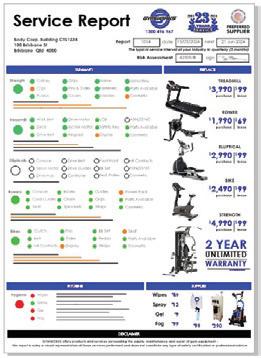























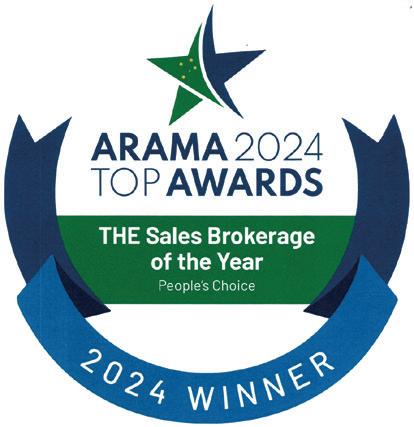



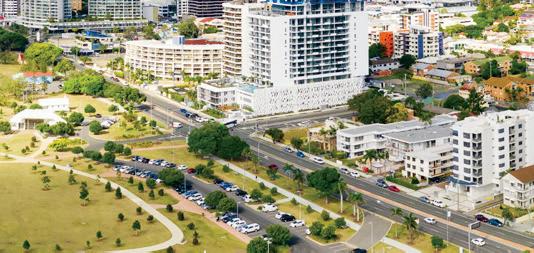













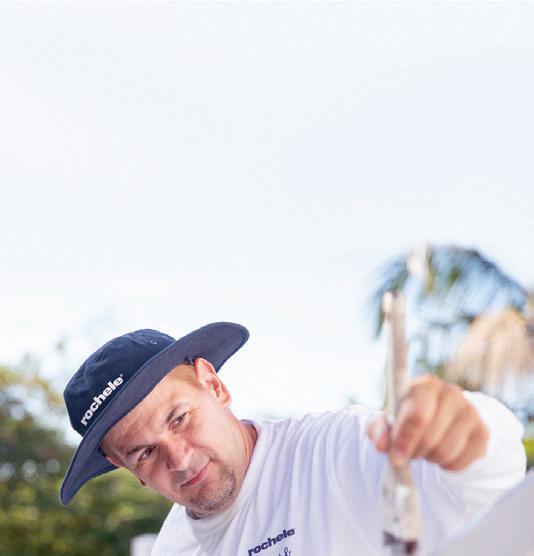


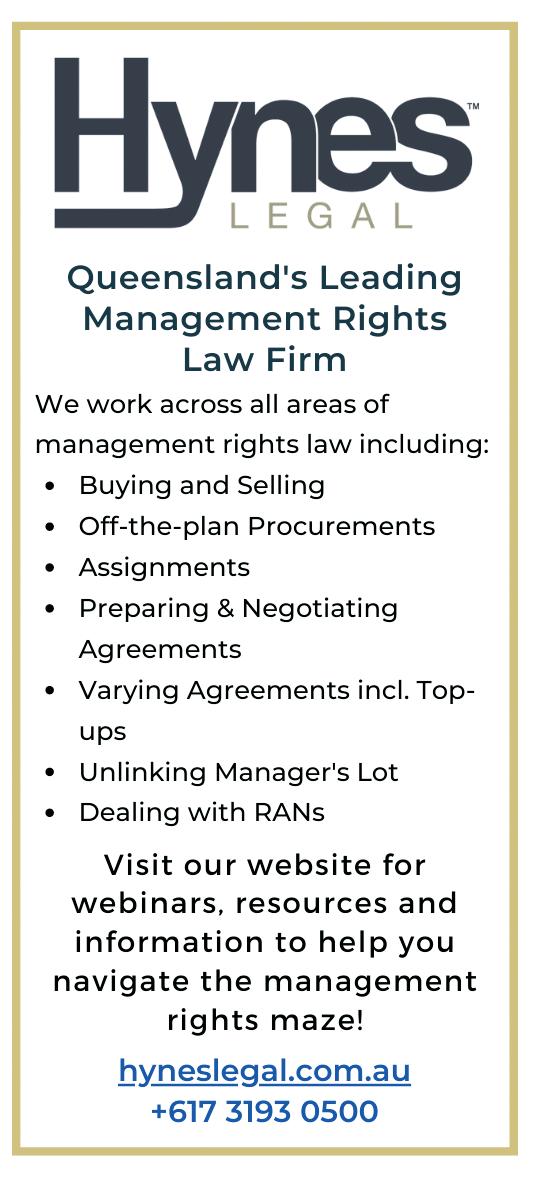




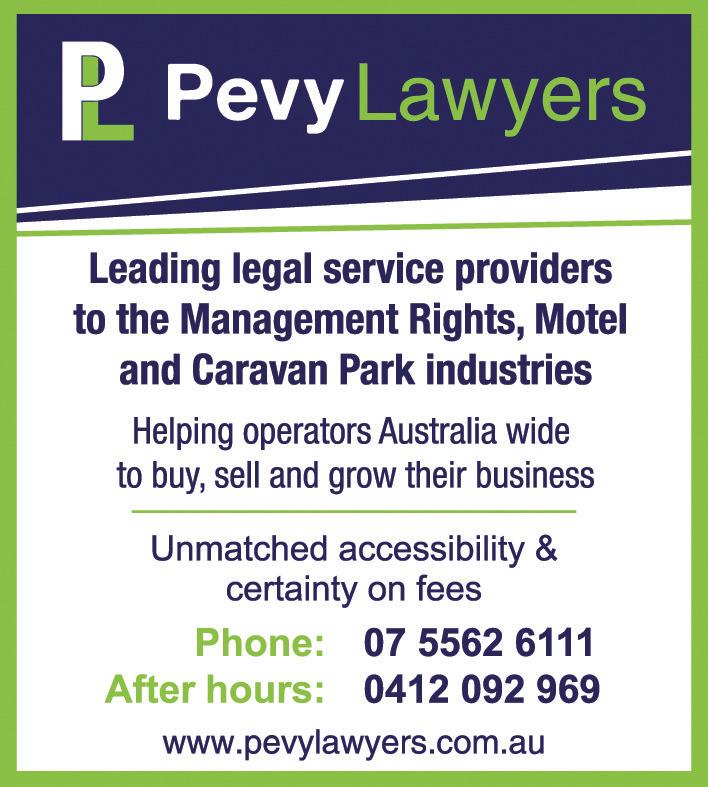























A seamless and comprehensive approach to property care, ensuring that every aspect of your property is taken care of with excellence.
• Painting & Remedial
• Facade Maintenance
• Height Access Solutions
• Facade Installs
• Anchor certifications
• Dilapidation Reports
• Waterproofing
• Complete Garden Maintenance
• Pool Maintenance
• Commercial Cleaning
• Hedging & Trimming
• Pressure Cleaning
• Tree Lopping & Mulching
• Irrigation & Sprinkler
System Repair
• Protective Coatings
• Roof Repaints
• Floor Repaints
• Preventative Maintenance
• Apartment Complex Re-paints
• Body Corporate Projects
• Interior & Exterior

